All about Drug Offenses
103 element(s) found
Document(s)
Saudi Arabia 2025: The Death Penalty Rules
By ESOHR, on 6 February 2026
2026
NGO report
Warning: Undefined variable $liste_type_doc in /home/worldcoa/coalition2020/wp-content/themes/WCADP/template-parts/contents-document.php on line 21
Warning: Undefined variable $liste_themes in /home/worldcoa/coalition2020/wp-content/themes/WCADP/template-parts/contents-document.php on line 35
Drug Offenses
Juveniles
Warning: Undefined variable $liste_pays in /home/worldcoa/coalition2020/wp-content/themes/WCADP/template-parts/contents-document.php on line 40
Saudi Arabia
Warning: Undefined variable $tag_langue in /home/worldcoa/coalition2020/wp-content/themes/WCADP/template-parts/contents-document.php on line 54
Warning: Undefined variable $lien_langue in /home/worldcoa/coalition2020/wp-content/themes/WCADP/template-parts/contents-document.php on line 55
ar
More details See the document
“Through this annual report, the European Saudi Organization for Human Rights (ESOHR) provides a comprehensive analysis of execution figures in 2025, documents the cases behind the numbers, and sheds light on the grave violations that accompanied arrest, trial, and execution, as part of its ongoing efforts to expose the reality of capital punishment in Saudi Arabia.”
- Document type NGO report
- Countries list Saudi Arabia
- Themes list Drug Offenses / Juveniles
- Available languages السعودية 2025: الإعدام يحكم
Document(s)
A village of graves: Widespread and systematic drug executions in Iran
By Iran Human Rights, on 15 January 2026
2026
NGO report
Warning: Undefined variable $liste_type_doc in /home/worldcoa/coalition2020/wp-content/themes/WCADP/template-parts/contents-document.php on line 21
Warning: Undefined variable $liste_themes in /home/worldcoa/coalition2020/wp-content/themes/WCADP/template-parts/contents-document.php on line 35
Drug Offenses
Warning: Undefined variable $liste_pays in /home/worldcoa/coalition2020/wp-content/themes/WCADP/template-parts/contents-document.php on line 40
Iran (Islamic Republic of)
Warning: Undefined variable $tag_langue in /home/worldcoa/coalition2020/wp-content/themes/WCADP/template-parts/contents-document.php on line 85
More details See the document
- Document type NGO report
- Countries list Iran (Islamic Republic of)
- Themes list Drug Offenses
Warning: Undefined variable $lien_langue in /home/worldcoa/coalition2020/wp-content/themes/WCADP/template-parts/contents-document.php on line 127
Document(s)
Immature Minds in a “Maturing Society”: Roper v. Simmons at 20
By Death Penalty Information Center, on 30 April 2025
2025
NGO report
Warning: Undefined variable $liste_type_doc in /home/worldcoa/coalition2020/wp-content/themes/WCADP/template-parts/contents-document.php on line 21
Warning: Undefined variable $liste_themes in /home/worldcoa/coalition2020/wp-content/themes/WCADP/template-parts/contents-document.php on line 35
Clemency
Death Row Conditions
Drug Offenses
Innocence
Intellectual Disability
Juveniles
Mental Illness
Trend Towards Abolition
Warning: Undefined variable $liste_pays in /home/worldcoa/coalition2020/wp-content/themes/WCADP/template-parts/contents-document.php on line 40
United States
Warning: Undefined variable $tag_langue in /home/worldcoa/coalition2020/wp-content/themes/WCADP/template-parts/contents-document.php on line 85
More details See the document
Twenty years after Roper v. Simmons ended the juvenile death penalty, new scientific and societal insights challenge the age-18 cutoff. This report introduces new DPI analysis of the trends in sentencing and executions of defendants age 18 to 20 based on twenty years of data, from the time of the Roper decision on March 1, 2005 through the end of 2024.
- Document type NGO report
- Countries list United States
- Themes list Clemency / Death Row Conditions / Drug Offenses / Innocence / Intellectual Disability / Juveniles / Mental Illness / Trend Towards Abolition
Warning: Undefined variable $lien_langue in /home/worldcoa/coalition2020/wp-content/themes/WCADP/template-parts/contents-document.php on line 127
Document(s)
Amicus Curiae brief in support of the Pan African Lawyers Union’s request for an Advisory Opinion on the Compatibility of the Death Penalty with the African Charter on Human and Peoples’ Rights
By The Advocates for Human Rights, on 10 April 2025
2025
NGO report
Warning: Undefined variable $liste_type_doc in /home/worldcoa/coalition2020/wp-content/themes/WCADP/template-parts/contents-document.php on line 21
Warning: Undefined variable $liste_themes in /home/worldcoa/coalition2020/wp-content/themes/WCADP/template-parts/contents-document.php on line 35
Cruel, Inhuman and Degrading Treatment and Punishment
Drug Offenses
Fair Trial
Gender
Legal Representation
Warning: Undefined variable $tmp in /home/worldcoa/coalition2020/wp-content/themes/WCADP/template-parts/contents-document.php on line 32
Moratorium
Murder Victims' Families
Terrorism
Trend Towards Abolition
Women
Warning: Undefined variable $tag_langue in /home/worldcoa/coalition2020/wp-content/themes/WCADP/template-parts/contents-document.php on line 85
More details See the document
In this submission in support of the Pan African Lawyers Union, the amici explain that the death penalty per se is an arbitrary deprivation of life, in violation of Article 4 of the African Charter, because the weight of the evidence shows that the death penalty is not necessary to achieve the stated purpose of reducing crime and as a penalty implicating human rights under the Charter it is disproportionate to the benefits it seeks to capture.
- Document type NGO report
Warning: Undefined variable $liste_pays in /home/worldcoa/coalition2020/wp-content/themes/WCADP/template-parts/contents-document.php on line 107
- Themes list Cruel, Inhuman and Degrading Treatment and Punishment / Drug Offenses / Fair Trial / Gender / Legal Representation / Moratorium / Murder Victims' Families / Terrorism / Trend Towards Abolition / Women
Warning: Undefined variable $lien_langue in /home/worldcoa/coalition2020/wp-content/themes/WCADP/template-parts/contents-document.php on line 127

Article(s)
Judicial Influence on Death Penalty Abolition: Global Legal Perspectives at the Biennial High-Level Panel
By Sandra Deballe, on 28 March 2025
On February 25, 2025, the biennial high-level panel on the death penalty was held at the United Nations Human Rights Council in Geneva, under the theme “Contribution of the Judiciary to the Advancement of Human Rights and the Question of the Death Penalty.”
2025
Drug Offenses
Fair Trial
Gender
Warning: Undefined variable $tmp in /home/worldcoa/coalition2020/wp-content/themes/WCADP/template-parts/contents.php on line 27
Moratorium
Public Opinion
Trend Towards Abolition
Women
Document(s)
From poverty to punishment: Examining laws and practices which criminalise women due to poverty or status worldwide
By Penal Reform International, Women Beyond Walls, on 17 March 2025
2025
NGO report
Warning: Undefined variable $liste_type_doc in /home/worldcoa/coalition2020/wp-content/themes/WCADP/template-parts/contents-document.php on line 21
Warning: Undefined variable $liste_themes in /home/worldcoa/coalition2020/wp-content/themes/WCADP/template-parts/contents-document.php on line 35
Death Row Conditions
Drug Offenses
Fair Trial
Gender
Intellectual Disability
Legal Representation
Mental Illness
Murder Victims' Families
Trend Towards Abolition
Women
Warning: Undefined variable $tag_langue in /home/worldcoa/coalition2020/wp-content/themes/WCADP/template-parts/contents-document.php on line 85
More details
Warning: Trying to access array offset on value of type bool in /home/worldcoa/coalition2020/wp-content/themes/WCADP/template-parts/contents-document.php on line 97
Warning: Trying to access array offset on value of type bool in /home/worldcoa/coalition2020/wp-content/themes/WCADP/template-parts/contents-document.php on line 99
Warning: Trying to access array offset on value of type bool in /home/worldcoa/coalition2020/wp-content/themes/WCADP/template-parts/contents-document.php on line 99
Download [ - 0 Ko ]
The report exposes how laws and policies disproportionately criminalise women due to their socio-economic status and vulnerabilities, and calls for urgent reforms to stop the criminalisation of women for poverty, survival strategies and gendered norms.
- Document type NGO report
Warning: Undefined variable $liste_pays in /home/worldcoa/coalition2020/wp-content/themes/WCADP/template-parts/contents-document.php on line 107
- Themes list Death Row Conditions / Drug Offenses / Fair Trial / Gender / Intellectual Disability / Legal Representation / Mental Illness / Murder Victims' Families / Trend Towards Abolition / Women
Warning: Undefined variable $lien_langue in /home/worldcoa/coalition2020/wp-content/themes/WCADP/template-parts/contents-document.php on line 127
Document(s)
The Death Penalty for Drug Offences: Global Overview 2024
on 12 March 2025
2025
NGO report
Warning: Undefined variable $liste_type_doc in /home/worldcoa/coalition2020/wp-content/themes/WCADP/template-parts/contents-document.php on line 21
Warning: Undefined variable $liste_pays in /home/worldcoa/coalition2020/wp-content/themes/WCADP/template-parts/contents-document.php on line 40
China
Warning: Undefined variable $liste_themes in /home/worldcoa/coalition2020/wp-content/themes/WCADP/template-parts/contents-document.php on line 35
Cruel, Inhuman and Degrading Treatment and Punishment
Democratic People's Republic of Korea
Drug Offenses
Fair Trial
Gender
Indonesia
Iran (Islamic Republic of)
Iraq
Legal Representation
Malaysia
Moratorium
Pakistan
Saudi Arabia
Singapore
Trend Towards Abolition
Viet Nam
Women
Warning: Undefined variable $tag_langue in /home/worldcoa/coalition2020/wp-content/themes/WCADP/template-parts/contents-document.php on line 85
More details See the document
The Death Penalty for Drug Offences: Global Overview 2024 report provides updates on legislative, policy and practical developments related to the use of capital punishment for drug offences, a practice which is a clear violation of international human rights and drug control standards. This report presents an analysis of key developments, with a focus on analysing and disseminating available figures and trends on drug-related executions and death sentences.
- Document type NGO report
- Countries list China / Democratic People's Republic of Korea / Indonesia / Iran (Islamic Republic of) / Iraq / Malaysia / Pakistan / Saudi Arabia / Singapore / Viet Nam
- Themes list Cruel, Inhuman and Degrading Treatment and Punishment / Drug Offenses / Fair Trial / Gender / Legal Representation / Moratorium / Trend Towards Abolition / Women
Warning: Undefined variable $lien_langue in /home/worldcoa/coalition2020/wp-content/themes/WCADP/template-parts/contents-document.php on line 127
Document(s)
Annual Report on the Death Penalty in Iran 2024
on 20 February 2025
2025
NGO report
Warning: Undefined variable $liste_type_doc in /home/worldcoa/coalition2020/wp-content/themes/WCADP/template-parts/contents-document.php on line 21
Warning: Undefined variable $liste_themes in /home/worldcoa/coalition2020/wp-content/themes/WCADP/template-parts/contents-document.php on line 35
Clemency
Cruel, Inhuman and Degrading Treatment and Punishment
Drug Offenses
Fair Trial
Gender
Intellectual Disability
Warning: Undefined variable $liste_pays in /home/worldcoa/coalition2020/wp-content/themes/WCADP/template-parts/contents-document.php on line 40
Iran (Islamic Republic of)
Juveniles
Legal Representation
Mental Illness
Murder Victims' Families
Women
Warning: Undefined variable $tag_langue in /home/worldcoa/coalition2020/wp-content/themes/WCADP/template-parts/contents-document.php on line 54
Warning: Undefined variable $lien_langue in /home/worldcoa/coalition2020/wp-content/themes/WCADP/template-parts/contents-document.php on line 55
fafr
More details See the document
The Report provides an in-depth analysis of death penalty trends in Iran 2024. It covers execution statistics, legislative frameworks, and the abolitionist movement, offering insights on how the international community can help reduce executions.
- Document type NGO report
- Countries list Iran (Islamic Republic of)
- Themes list Clemency / Cruel, Inhuman and Degrading Treatment and Punishment / Drug Offenses / Fair Trial / Gender / Intellectual Disability / Juveniles / Legal Representation / Mental Illness / Murder Victims' Families / Women
- Available languages گزارش سالانه اعدام در ایران؛ ۲۰۲۴Rapport annuel sur la peine de mort en Iran
Document(s)
Blood Era: A Historic Record of Executions in Saudi Arabia 2024
By European Saudi Organization for Human Rights (ESOHR), on 5 January 2025
2025
NGO report
Warning: Undefined variable $liste_type_doc in /home/worldcoa/coalition2020/wp-content/themes/WCADP/template-parts/contents-document.php on line 21
Warning: Undefined variable $liste_themes in /home/worldcoa/coalition2020/wp-content/themes/WCADP/template-parts/contents-document.php on line 35
Cruel, Inhuman and Degrading Treatment and Punishment
Drug Offenses
Juveniles
Warning: Undefined variable $liste_pays in /home/worldcoa/coalition2020/wp-content/themes/WCADP/template-parts/contents-document.php on line 40
Saudi Arabia
Warning: Undefined variable $tag_langue in /home/worldcoa/coalition2020/wp-content/themes/WCADP/template-parts/contents-document.php on line 54
Warning: Undefined variable $lien_langue in /home/worldcoa/coalition2020/wp-content/themes/WCADP/template-parts/contents-document.php on line 55
ar
More details See the document
The European Saudi Organization for Human Rights (ESOHR) reports an alarming escalation in executions in Saudi Arabia in 2024, marking a historic high with 345 individuals executed—double the number from 2023. This report highlights the extensive use of the death penalty, with executions for drug-related offenses, political charges, and discretionary judgments (Taazir) significantly increasing. The grim statistics reveal a judicial system fraught with human rights violations, including torture, lack of legal defense, and the execution of minors and women. Amid international criticism, Saudi Arabia’s use of the death penalty underscores a blatant disregard for justice and human dignity, perpetuating fear and repression while pursuing an international image of progressiveness.
- Document type NGO report
- Countries list Saudi Arabia
- Themes list Cruel, Inhuman and Degrading Treatment and Punishment / Drug Offenses / Juveniles
- Available languages عهد الدم: رقم تاريخي للإعدام في السعودية ٢٠٢٤
Document(s)
Beyond punishment: From criminal justice responses to drug policy reform
By The Global Commission on Drug Policy, on 12 December 2024
2024
NGO report
Warning: Undefined variable $liste_type_doc in /home/worldcoa/coalition2020/wp-content/themes/WCADP/template-parts/contents-document.php on line 21
Warning: Undefined variable $liste_themes in /home/worldcoa/coalition2020/wp-content/themes/WCADP/template-parts/contents-document.php on line 35
Drug Offenses
Warning: Undefined variable $tag_langue in /home/worldcoa/coalition2020/wp-content/themes/WCADP/template-parts/contents-document.php on line 54
Warning: Undefined variable $lien_langue in /home/worldcoa/coalition2020/wp-content/themes/WCADP/template-parts/contents-document.php on line 55
fr
More details See the document
The Global Commission on Drug Policy’s report, Beyond Punishment: From Criminal Justice Responses to Drug Policy Reform, exposes how punitive drug policies have driven mass incarceration and grave human rights violations. In 2023 alone, over 3.1 million people were arrested for drug-related offenses, with 20% of the global prison population detained for such crimes – nearly half for simple possession.
The report underscores the devastating consequences of prohibitionist policies, including over one million overdose deaths in the U.S. in the past two decades and 40,000 in Canada in just eight years. It also highlights systemic inequities, such as Indigenous peoples in Canada being six times more likely to face drug-related arrests than white counterparts. Furthermore, the report illustrates the disproportionate burdens on women and children, deepening cycles of poverty and marginalization.
It examines the broad spectrum of criminal justice responses to drug offenses, ranging from stop-and-search practices that disproportionately target marginalized communities to extreme measures like the death penalty and enforced treatment. These approaches often violate human rights, perpetuate stigma, and fail to address the root causes of substance use.
Offering a roadmap for reform, the report advocates for evidence-based strategies, including harm reduction measures (e.g., Overdose Prevention Centers, naloxone distribution, and safer supply programs), decriminalization and the legal regulation of drug markets. These approaches not only save lives but also reduce societal harms, foster dignity, and promote health and equity.
- Document type NGO report
Warning: Undefined variable $liste_pays in /home/worldcoa/coalition2020/wp-content/themes/WCADP/template-parts/contents-document.php on line 107
- Themes list Drug Offenses
- Available languages De l’échec de la pénalisation à la réforme des politiques en matière de drogues
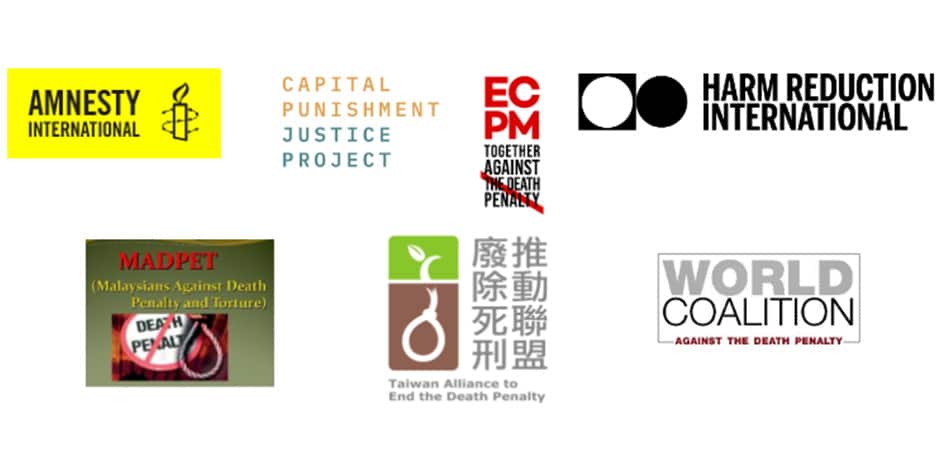
Article(s)
Singapore: Authorities must end human rights crackdown and unlawful drug related executions
By World Coalition Against the Death Penalty, on 2 December 2024
We, the undersigned seven organizations, are greatly alarmed at the deteriorating human rights situation in Singapore. Abstract of a joint statement published on 31 October 2024. To read the full statement.
2024
Drug Offenses
Warning: Undefined variable $tmp in /home/worldcoa/coalition2020/wp-content/themes/WCADP/template-parts/contents.php on line 27
Singapore

Article(s)
NGOs voice fears for dozens of Egyptian prisoners, and hundreds of others, facing execution for drugs-related offenses in Saudi Arabia
By World Coalition Against the Death Penalty, on 13 September 2024
We, the undersigned organisations, are gravely fearful for the lives of hundreds of prisoners threatened with imminent execution in Saudi Arabia on drugs-related charges, including 33 Egyptians on a single wing of Tabuk Prison.
2024
Drug Offenses
Warning: Undefined variable $tmp in /home/worldcoa/coalition2020/wp-content/themes/WCADP/template-parts/contents.php on line 27
Saudi Arabia
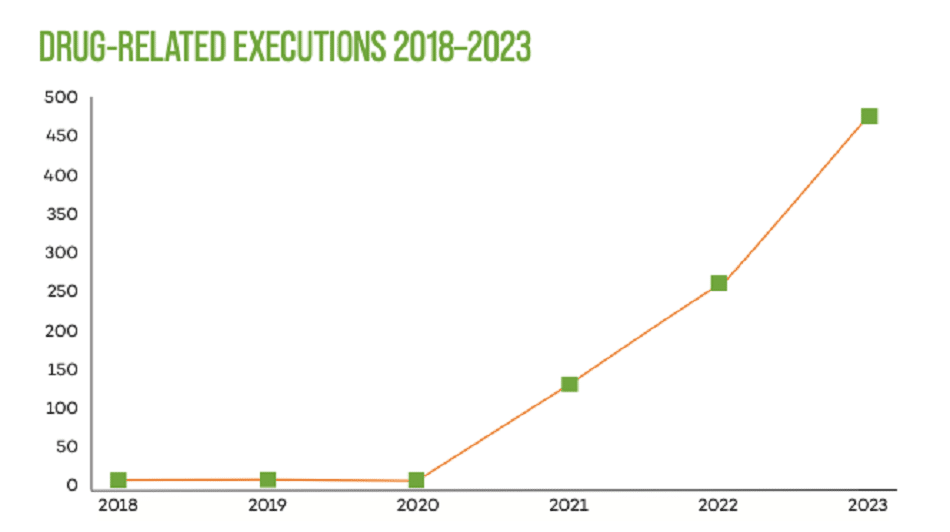
Article(s)
“Frightening” increase of executions in Iran
By World coalition against the death penalty, on 20 June 2024
Iran Human Rights (IHRNGO) reports that at least 243 people, including 10 women, have been executed in 2024, as of 15 June. In 2023, the number of people executed has increased from 582 to 834. At least 471 people were executed for drug-related offenses. This represent a 84% increase compared to 2022 (256).
2024
Drug Offenses
Iran (Islamic Republic of)
Document(s)
Special issue: a decade-long review of the death penalty for drug offences
By Harm Reduction International, on 7 May 2024
2024
NGO report
Warning: Undefined variable $liste_type_doc in /home/worldcoa/coalition2020/wp-content/themes/WCADP/template-parts/contents-document.php on line 21
Warning: Undefined variable $liste_themes in /home/worldcoa/coalition2020/wp-content/themes/WCADP/template-parts/contents-document.php on line 35
Drug Offenses
Warning: Undefined variable $tag_langue in /home/worldcoa/coalition2020/wp-content/themes/WCADP/template-parts/contents-document.php on line 85
More details See the document
This report builds on the pioneering work HRI has been doing since its first ‘The Death Penalty for Drug Offences: Global Overview (‘Global Overview’) in 2007. It analyses how the landscape of the death penalty for drug offences has shifted in the last decade, looking at the main trends regarding people on death row, death sentences and executions for drug offences, as well as key developments at national and international level in the period between 2014 and 2023.
- Document type NGO report
Warning: Undefined variable $liste_pays in /home/worldcoa/coalition2020/wp-content/themes/WCADP/template-parts/contents-document.php on line 107
- Themes list Drug Offenses
Warning: Undefined variable $lien_langue in /home/worldcoa/coalition2020/wp-content/themes/WCADP/template-parts/contents-document.php on line 127
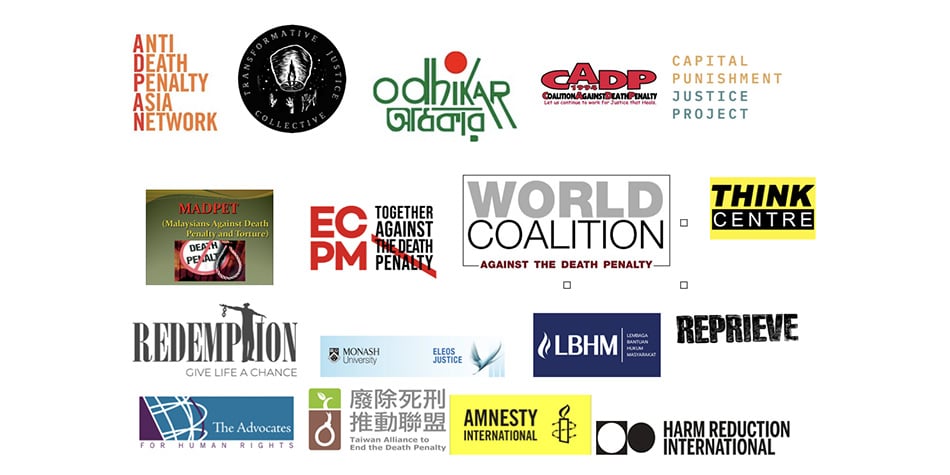
Article(s)
Calling on Singapore to respect international safeguards and halt executions
on 3 May 2024
We are greatly concerned by the news that the Government of Singapore has issued at least five execution notices since 12 April 2024, all cases in relation to drug offending. Transformative Justice Collective, a member of the Anti-Death Penalty Asia Network, reports that in four of these five cases, the execution was stayed at the […]
2024
Drug Offenses
Fair Trial
Warning: Undefined variable $tmp in /home/worldcoa/coalition2020/wp-content/themes/WCADP/template-parts/contents.php on line 27
Legal Representation
Singapore
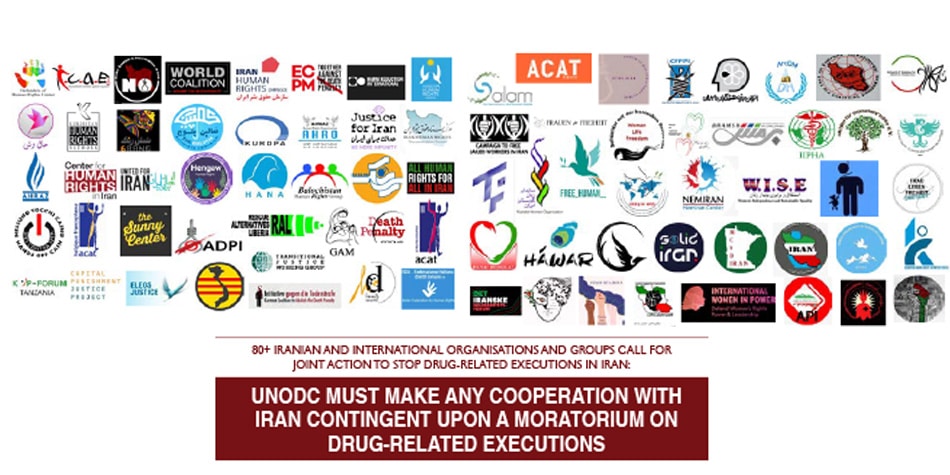
Article(s)
Call for joint action to stop drug-related executions in Iran
on 3 May 2024
April 10, 2024 Iran Human Rights (IHRNGO) and 83 Iranian and international organisations and groups have called for joint action to stop drug-related executions, urging UNODC to make “any cooperation with the Islamic Republic contingent on a complete halt on drug-related executions”. They have announced the start of a mass international campaign in this regard.
Drug Offenses
Warning: Undefined variable $tmp in /home/worldcoa/coalition2020/wp-content/themes/WCADP/template-parts/contents.php on line 27
Iran (Islamic Republic of)
Document(s)
The Death Penalty For Drug Offences: Global Overview 2023
By Harm Reduction International, on 28 March 2024
2024
NGO report
Warning: Undefined variable $liste_type_doc in /home/worldcoa/coalition2020/wp-content/themes/WCADP/template-parts/contents-document.php on line 21
Warning: Undefined variable $liste_themes in /home/worldcoa/coalition2020/wp-content/themes/WCADP/template-parts/contents-document.php on line 35
Drug Offenses
Warning: Undefined variable $tag_langue in /home/worldcoa/coalition2020/wp-content/themes/WCADP/template-parts/contents-document.php on line 85
More details See the document
Published in 2023.
At the end of 2023, 34 countries retained the death for drug offences. In July 2023 Pakistan took the landmark decision to remove the death penalty from the list of punishments that can be imposed for certain violations of its Control of Narcotics Substances Act. This year also saw notable progress in Malaysia, which abolished the mandatory death penalty for all offences, including drug-related ones. This reform may impact the lives of over 700 people on death row for drug offences and bring the country one step closer to total abolition of capital punishment. In stark contrast to these positive developments is the record-high number of drug-related executions in 2023 at least 467. Of those executed, at least 59 people belonged to ethnic minority groups (in Iran and in Singapore), 13 individuals were foreign nationals, and six were women. These figures confirm that these groups are uniquely vulnerable to capital punishment as a tool of drug control. Despite not accounting for the dozens, if not hundreds, of executions believed to have taken place in China, Vietnam, and North Korea, the 467 executions that took place in 2023 represent a 44% increase from 2022.
- Document type NGO report
Warning: Undefined variable $liste_pays in /home/worldcoa/coalition2020/wp-content/themes/WCADP/template-parts/contents-document.php on line 107
- Themes list Drug Offenses
Warning: Undefined variable $lien_langue in /home/worldcoa/coalition2020/wp-content/themes/WCADP/template-parts/contents-document.php on line 127
Document(s)
Proven With(out) Certainty: How Judges Sentence Defendants to Death for Drug Offences in Iran
By Abdorrahman Boroumand Foundation for the Promotion of Human Rights and Democracy in Iran, Monash University and ELEOS Justice, on 6 February 2024
2024
NGO report
Warning: Undefined variable $liste_type_doc in /home/worldcoa/coalition2020/wp-content/themes/WCADP/template-parts/contents-document.php on line 21
Warning: Undefined variable $liste_themes in /home/worldcoa/coalition2020/wp-content/themes/WCADP/template-parts/contents-document.php on line 35
Drug Offenses
Warning: Undefined variable $tag_langue in /home/worldcoa/coalition2020/wp-content/themes/WCADP/template-parts/contents-document.php on line 85
More details See the document
Published in April 2023.
Despite the reduction in the number of executions for drug offences during 2018-2020, a sudden increase in executions was recorded during 2021-2023: at least 131 known executions were recorded for drug offences in 2021, 253 executions in 2022, and 82 executions during the first 3 months of 2023 (Table). However, information concerning the death penalty in Iran is notoriously difficult to obtain because of the secrecy surrounding the country’s criminal justice process. This note provides a rare glimpse into the application of capital drug laws in the Islamic Republic of Iran. It exposes the idiosyncratic practices of the judiciary and its decision-making, using cases concerning the death penalty for drug offences—its imposition prohibited long under international standards. These judgments repeatedly use the language of ‘certainty’ in convicting the accused. In reality, to those familiar with basic fair trial standards, they raise serious concerns about miscarriages of justice that could potentially result in the erosion of legitimacy of the criminal ‘justice’ system in Iran.
- Document type NGO report
Warning: Undefined variable $liste_pays in /home/worldcoa/coalition2020/wp-content/themes/WCADP/template-parts/contents-document.php on line 107
- Themes list Drug Offenses
Warning: Undefined variable $lien_langue in /home/worldcoa/coalition2020/wp-content/themes/WCADP/template-parts/contents-document.php on line 127
Document(s)
Singapore’s death penalty for drug trafficking: What the research says and doesn’t
By Academia SG - Promoting Scorlorahsip Of/For/By Singapore, on 24 January 2024
2024
Academic report
Warning: Undefined variable $liste_type_doc in /home/worldcoa/coalition2020/wp-content/themes/WCADP/template-parts/contents-document.php on line 21
Warning: Undefined variable $liste_themes in /home/worldcoa/coalition2020/wp-content/themes/WCADP/template-parts/contents-document.php on line 35
Drug Offenses
Warning: Undefined variable $liste_pays in /home/worldcoa/coalition2020/wp-content/themes/WCADP/template-parts/contents-document.php on line 40
Singapore
Warning: Undefined variable $tag_langue in /home/worldcoa/coalition2020/wp-content/themes/WCADP/template-parts/contents-document.php on line 85
More details See the document
Published on October 7, 2023.
Of all retentionist countries, Singapore seems to be the most vocal about the need to execute individuals as a form of criminal punishment. MAI SATO (Monash University) reviews studies conducted or commissioned by Singapore’s Ministry of Home Affairs that claim public backing for and the effectiveness of the death penalty in managing drug trafficking. Sato finds that these studies provide far weaker evidence for using the death penalty for drug trafficking than their authors and officials citing them claim.
- Document type Academic report
- Countries list Singapore
- Themes list Drug Offenses
Warning: Undefined variable $lien_langue in /home/worldcoa/coalition2020/wp-content/themes/WCADP/template-parts/contents-document.php on line 127
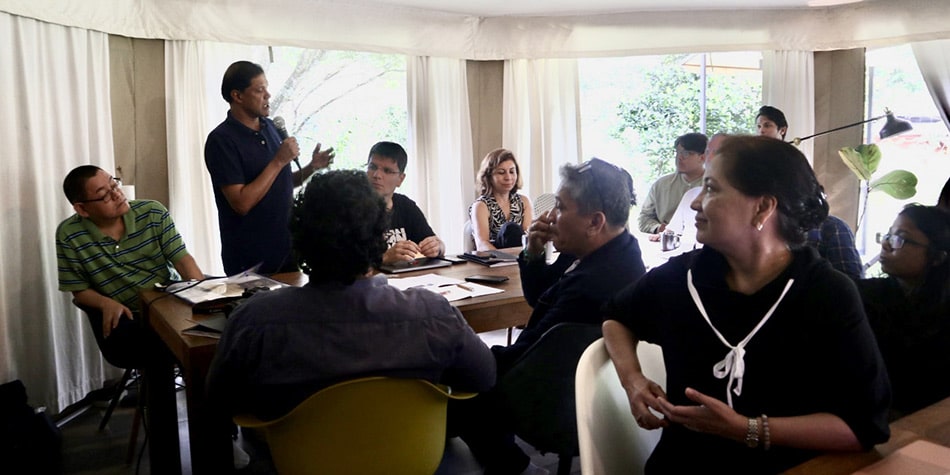
Article(s)
Démystifier les arguments en faveur du rétablissement de la peine de mort
By Venus Aves, on 13 November 2023
À maintes reprises, les abolitionnistes ont plaidé contre la peine de mort en soulignant son caractère inhumain, inefficace et injuste.
2023
Drug Offenses
Maldives
Philippines
Public Opinion
Sri Lanka
Turkey

Article(s)
Debunking narratives for a return of the death penalty
By Venus Aves, on 13 November 2023
Time and time again, abolitionists have been making the case against the death penalty, highlighting how inhumane, inefficient and unfair it is.
Drug Offenses
Maldives
Philippines
Public Opinion
Sri Lanka
Trend Towards Abolition
Turkey
Document(s)
A/HRC/54/53: Human rights challenges in addressing and countering all aspects of the world drug problem – Report of the Office of the United Nations High Commissioner for Human Rights
By United Nations , on 15 August 2023
2023
Academic report
Warning: Undefined variable $liste_type_doc in /home/worldcoa/coalition2020/wp-content/themes/WCADP/template-parts/contents-document.php on line 21
United Nations report
Warning: Undefined variable $liste_themes in /home/worldcoa/coalition2020/wp-content/themes/WCADP/template-parts/contents-document.php on line 35
Drug Offenses
Warning: Undefined variable $tag_langue in /home/worldcoa/coalition2020/wp-content/themes/WCADP/template-parts/contents-document.php on line 54
Warning: Undefined variable $lien_langue in /home/worldcoa/coalition2020/wp-content/themes/WCADP/template-parts/contents-document.php on line 55
aresfrruzh-hant
More details See the document
The present report outlines human rights challenges in addressing and countering key
aspects of the world drug problem. It also offers an overview of recent positive developments
to shift towards more human rights-centred drug policies, and provides recommendations on
the way forward in view of the upcoming midterm review of the 2019 Ministerial Declaration
and to contribute to the implementation of the 2030 Agenda for Sustainable Development.
- Document type Academic report / United Nations report
Warning: Undefined variable $liste_pays in /home/worldcoa/coalition2020/wp-content/themes/WCADP/template-parts/contents-document.php on line 107
- Themes list Drug Offenses
- Available languages التحديات الناشئئئنة لت التصئئئد لمخئئئ لة المخدرات العالمية بجميع جوان ا ومواج ت ا في التمتع بحقوق اإلنسان تقرير مفوضية األمم المتحدة السامية لحقوق اإلنسان*A/HRC/54/53: Desafíos en materia de derechos humanos a la hora de abordar y contrarrestar todos los aspectos del problema mundial de las drogas - Informe de la Oficina del Alto Comisionado de las Naciones Unidas para los Derechos HumanosA/HRC/54/53 : Enjeux en matière de droits de l’homme de la mobilisation et de la lutte contre le problème mondial de la drogue sous tous ses aspects - Rapport du Haut-Commissariat des Nations Unies aux droits de l’hommeПроблемы в области прав человека при решении мировой проблемы наркотиков во всех ее аспектах и борьбе с нею Доклад Управления Верховного комиссара Организации Объединенных Наций по правам человекаA/HRC/54/53:全方位处理和应对世界毒品问题方面的人权挑战 - 联合国人权事务高级专员办事处的报告
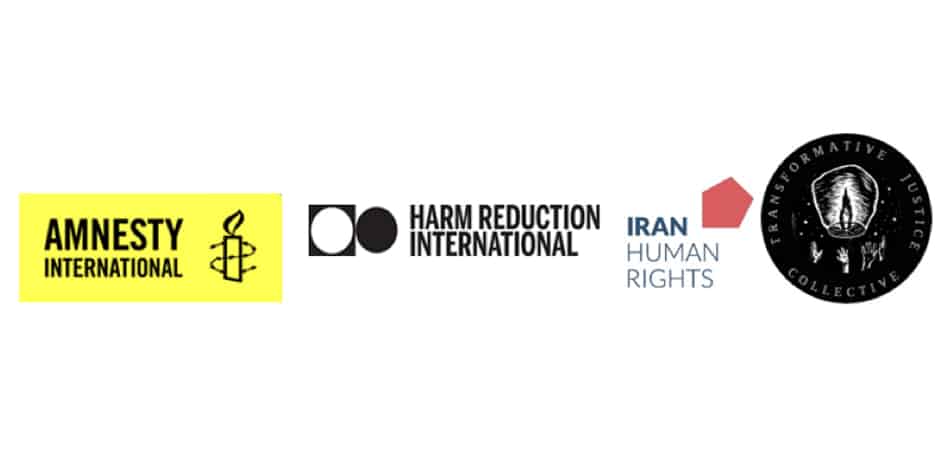
Article(s)
بیانیه مشترک چهار سازمان حقوق بشر در روز جهانی مبارزه با سوءمصرف مواد مخدر: دفتر مقابله با مواد مخدر و جرم سازمان ملل برای توقف اعدام تلاش کند
on 7 July 2023
سازمان حقوق بشر ایران، سازمان عفو بینالملل، سازمان بینالمللی کاهش آسیب و جمعیت عدالت تحول آفرین با صدور بیانیهای مشترک در روز جهانی مبارزه با سوءمصرف مواد مخدر و قاچاق غیرقانونی، از دفتر مقابله با مواد مخدر و جرم سازمان ملل متحد خواستند تا در جهت توقف استفاده از مجازات اعدام برای جرایم مرتبط با مواد مخدر […]
2023
Drug Offenses
Warning: Undefined variable $tmp in /home/worldcoa/coalition2020/wp-content/themes/WCADP/template-parts/contents.php on line 27

Article(s)
Journée mondiale sur les drogues : L’ONUDC doit agir pour mettre fin à l’application de la peine de mort pour les infractions liées à la drogue et exhorter les États à mettre fin aux exécutions.
By Amnesty International, Harm Reduction International, Iran Human Rights, Transformative Justice Collective, on 27 June 2023
Le 26 juin, l’Office des Nations unies contre la drogue et le crime (ONUDC) célèbre la Journée mondiale sur les drogues avec le thème « Les gens avant tout : Mettons fin à la stigmatisation et à la discrimination, renforçons la prévention » et lance une nouvelle édition du Rapport mondial sur les drogues. Malheureusement, comme c’est […]
2023
Warning: Undefined variable $tmp in /home/worldcoa/coalition2020/wp-content/themes/WCADP/template-parts/contents.php on line 27
Drug Offenses

Article(s)
World Drugs Day: UNODC must act to stop the use of death penalty for drug-related offences and urge states to end executions
By Amnesty International, Harm Reduction International, Iran Human Rights, Transformative Justice Collective, on 27 June 2023
On 26 June, the UN Office on Drugs and Crime (UNODC) is marking World Drugs Day with the theme “People first: stop stigma and discrimination, strengthen prevention”, and launched another edition of the World Drug Report. Sadly, as has been the case over the years, UNODC has failed to raise concerns over the continued use […]
Warning: Undefined variable $tmp in /home/worldcoa/coalition2020/wp-content/themes/WCADP/template-parts/contents.php on line 27
Drug Offenses
Document(s)
Dealing with Punishment: Risks and Rewards in Indonesia’s Illicit Drug Trade
By Carolyn Hoyle, Death Penalty Project, on 18 April 2023
2023
NGO report
Warning: Undefined variable $liste_type_doc in /home/worldcoa/coalition2020/wp-content/themes/WCADP/template-parts/contents-document.php on line 21
Warning: Undefined variable $liste_themes in /home/worldcoa/coalition2020/wp-content/themes/WCADP/template-parts/contents-document.php on line 35
Drug Offenses
Warning: Undefined variable $liste_pays in /home/worldcoa/coalition2020/wp-content/themes/WCADP/template-parts/contents-document.php on line 40
Indonesia
Warning: Undefined variable $tag_langue in /home/worldcoa/coalition2020/wp-content/themes/WCADP/template-parts/contents-document.php on line 85
More details See the document
In 2020-2021, The Death Penalty Project, in partnership with Community Legal Aid Institute, LBH Masyarakat, commissioned The Death Penalty Research Unit (DPRU) at the University of Oxford, in association with University Centre of Excellence HIV/AIDS Research Centre-HPSI at Atma Jaya Catholic University of Indonesia (AJCU), to conduct the research building empirical knowledge on who is being convicted for drug offences and uncover the factors that have influenced their motivations and decision making. Interviews were conducted on 57 prisoners from a prison in Jakrata, Indonesia, all convicted for drug offences. This is the first stage of a larger mapping project, which will interview those convicted of drug offences and sentenced to death or life in prisons across Indonesia and Southeast Asia. It also compliments our two part opinion study on attitudes on capital punishment in Indonesia.
- Document type NGO report
- Countries list Indonesia
- Themes list Drug Offenses
Warning: Undefined variable $lien_langue in /home/worldcoa/coalition2020/wp-content/themes/WCADP/template-parts/contents-document.php on line 127
Document(s)
The Death Penalty for Drug Offences: Global Overview 2022
on 24 March 2023
2023
NGO report
Warning: Undefined variable $liste_type_doc in /home/worldcoa/coalition2020/wp-content/themes/WCADP/template-parts/contents-document.php on line 21
Warning: Undefined variable $liste_pays in /home/worldcoa/coalition2020/wp-content/themes/WCADP/template-parts/contents-document.php on line 40
China
Democratic People's Republic of Korea
Warning: Undefined variable $liste_themes in /home/worldcoa/coalition2020/wp-content/themes/WCADP/template-parts/contents-document.php on line 35
Drug Offenses
Indonesia
Iran (Islamic Republic of)
Malaysia
Saudi Arabia
Singapore
Viet Nam
Warning: Undefined variable $tag_langue in /home/worldcoa/coalition2020/wp-content/themes/WCADP/template-parts/contents-document.php on line 85
More details See the document
Harm Reduction International has monitored the use of the death penalty for drug offences worldwide since our first ground-breaking publication on this issue in 2007. This report, our twelfth on the subject, continues our work of providing regular updates on legislative, policy and practical developments related to the use of capital punishment for drug offences, a practice which is a clear violation of international standards. As of December 2022, Harm Reduction International (HRI) recorded at least 285 executions for drug offences globally during the year, a 118% increase from 2021, and an 850% increase from 2020. Executions for drug offences are confirmed or assumed to have taken place in six countries: Iran, Saudi Arabia, Singapore, plus in China, North Korea and Vietnam – on which exact figures cannot be provided because of extreme opacity. Therefore, this figure is likely to reflect only a percentage of all drug-related executions worldwide. Confirmed death sentences for drug offences were also on the rise; with at least 303 people sentenced to death in 18 countries. This marks a 28% increase from 2021.
- Document type NGO report
- Countries list China / Democratic People's Republic of Korea / Indonesia / Iran (Islamic Republic of) / Malaysia / Saudi Arabia / Singapore / Viet Nam
- Themes list Drug Offenses
Warning: Undefined variable $lien_langue in /home/worldcoa/coalition2020/wp-content/themes/WCADP/template-parts/contents-document.php on line 127

Article(s)
35 منظمة غير حكومية تدعو جهات أممية إلى إدانة إعدامات المخدرات في السعودية والسعي لوقفها
By المنظمة الأوروبية السعودية لحقوق الإنسان, on 1 December 2022
دعت المنظمة الأوروبية السعودية لحقوق الإنسان، والمنظمة الدولية للحد من الأضرار، إلى جانب 33 منظمة غير حكومية أخرى، كل من الهيئة الدولية لمراقبة المخدرات ومكتب الأمم المتحدة المعني بالمخدرات والجريمة، إلى العمل على إجراءات عاجلة ردا على سلسلة عمليات الإعدام المتعلقة بتهم مخدرات والتي نفذتها المملكة العربية السعودية منذ 10 نوفمبر 2022.
2022
Drug Offenses
Warning: Undefined variable $tmp in /home/worldcoa/coalition2020/wp-content/themes/WCADP/template-parts/contents.php on line 27
Saudi Arabia

Article(s)
Calling on international bodies to condemn drug executions in Saudi Arabia and seek to stop them
By European Saudi Organization for Human Rights, on 1 December 2022
The European Saudi Organization for Human Rights and Harm Reduction International, and the World Coalition Against the Death Penalty along with 32 other NGOs have called on the International Narcotics Control Board and the United Nations Office on Drugs and Crime to act on urgent measures in response to the series of drug-related executions carried […]
Drug Offenses
Warning: Undefined variable $tmp in /home/worldcoa/coalition2020/wp-content/themes/WCADP/template-parts/contents.php on line 27
Saudi Arabia
Document(s)
Death Penalty For Drug Offences: Global Overview 2021
on 21 March 2022
2022
NGO report
Warning: Undefined variable $liste_type_doc in /home/worldcoa/coalition2020/wp-content/themes/WCADP/template-parts/contents-document.php on line 21
Warning: Undefined variable $liste_themes in /home/worldcoa/coalition2020/wp-content/themes/WCADP/template-parts/contents-document.php on line 35
Drug Offenses
Warning: Undefined variable $tag_langue in /home/worldcoa/coalition2020/wp-content/themes/WCADP/template-parts/contents-document.php on line 85
More details See the document
Harm Reduction International has monitored the use of the death penalty for drug offences worldwide since our first ground-breaking publication on this issue in 2007. This report, our eleventh on the subject, continues our work of providing regular updates on legislative, policy and practical developments related to the use of capital punishment for drug offences, a practice which is a clear violation of international law.
The Death Penalty for Drug Offences: Global Overview 2021 found that: 1) 35 countries still retain the death penalty for drug offences 2) At least 131 people were executed for drug offences in 2021 – a 336% increase from 2020. However, due to a severe lack of transparency, if not outright censorship, this is only a partial picture. This figure likely represents only a fraction of all drug-related executions carried out globally.
- Document type NGO report
Warning: Undefined variable $liste_pays in /home/worldcoa/coalition2020/wp-content/themes/WCADP/template-parts/contents-document.php on line 107
- Themes list Drug Offenses
Warning: Undefined variable $lien_langue in /home/worldcoa/coalition2020/wp-content/themes/WCADP/template-parts/contents-document.php on line 127
Document(s)
Advisory on the Increased Vulnerabilty of Women Migrant Workers on Death Row
By Commission on Human Rights of the Philippines, on 3 December 2021
2021
Government body report
Warning: Undefined variable $liste_type_doc in /home/worldcoa/coalition2020/wp-content/themes/WCADP/template-parts/contents-document.php on line 21
Warning: Undefined variable $liste_themes in /home/worldcoa/coalition2020/wp-content/themes/WCADP/template-parts/contents-document.php on line 35
Drug Offenses
Legal Representation
Warning: Undefined variable $liste_pays in /home/worldcoa/coalition2020/wp-content/themes/WCADP/template-parts/contents-document.php on line 40
Philippines
Women
Warning: Undefined variable $tag_langue in /home/worldcoa/coalition2020/wp-content/themes/WCADP/template-parts/contents-document.php on line 54
Warning: Undefined variable $lien_langue in /home/worldcoa/coalition2020/wp-content/themes/WCADP/template-parts/contents-document.php on line 55
fr
More details Download [ pdf - 1457 Ko ]
The Commission on Human Rights of the Philippines issues this advisory to bring the Philippines’ attention to the heightened vulnerabilities of women Overseas Filipino Workers (OFWs).
- Document type Government body report
- Countries list Philippines
- Themes list Drug Offenses / Legal Representation / Women
- Available languages Avis sur la vulnérabilité accrue des travailleuses migrantes dans le couloir de la mort
Document(s)
“No One Believed Me”: A Global Overview of Women Facing the Death Penalty for Drug Offenses
on 5 October 2021
2021
NGO report
Warning: Undefined variable $liste_type_doc in /home/worldcoa/coalition2020/wp-content/themes/WCADP/template-parts/contents-document.php on line 21
Warning: Undefined variable $liste_themes in /home/worldcoa/coalition2020/wp-content/themes/WCADP/template-parts/contents-document.php on line 35
Drug Offenses
Women
Warning: Attempt to read property "post_name" on null in /home/worldcoa/coalition2020/wp-content/themes/WCADP/template-parts/contents-document.php on line 54
Warning: Undefined variable $tag_langue in /home/worldcoa/coalition2020/wp-content/themes/WCADP/template-parts/contents-document.php on line 54
Warning: Attempt to read property "post_name" on null in /home/worldcoa/coalition2020/wp-content/themes/WCADP/template-parts/contents-document.php on line 55
Warning: Attempt to read property "post_title" on null in /home/worldcoa/coalition2020/wp-content/themes/WCADP/template-parts/contents-document.php on line 55
Warning: Undefined variable $lien_langue in /home/worldcoa/coalition2020/wp-content/themes/WCADP/template-parts/contents-document.php on line 55
fr
More details See the document
“No one believed me” is a quote from Merri Utami, who was sentenced to death for drug trafficking in Indonesia in 2002. Her quote reflects the injustices faced by women accused of capital drug offenses around the world: many decision-makers disbelieve women’s plausible innocence claims or discount the effects of relationships and economic instability on women’s decisions to traffic drugs.
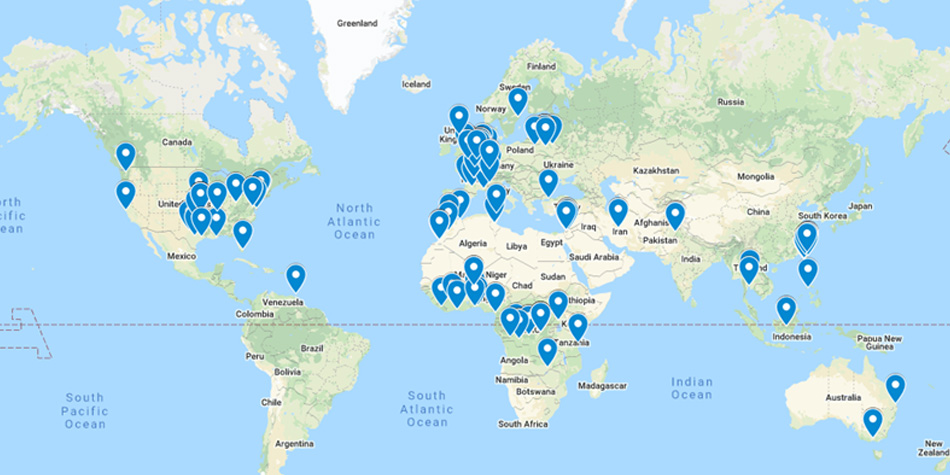
Article(s)
Take Action for World Day 2021!
By World Coalition Against the Death Penalty, on 10 September 2021
Take action now! The 19th World Day Against the Death Penalty is an excellent opportunity to publicly oppose the use of this inhumane punishment and to support those who are fighting for its abolition all over the world.
2021
Drug Offenses
Fair Trial
Warning: Undefined variable $tmp in /home/worldcoa/coalition2020/wp-content/themes/WCADP/template-parts/contents.php on line 27
Women
Document(s)
The war on drugs, forensic science and the death penalty in the Philippines
By Maria Corazon A.De Ungria and Jose M.Jose, on 10 August 2021
2021
Academic report
Warning: Undefined variable $liste_type_doc in /home/worldcoa/coalition2020/wp-content/themes/WCADP/template-parts/contents-document.php on line 21
Warning: Undefined variable $liste_themes in /home/worldcoa/coalition2020/wp-content/themes/WCADP/template-parts/contents-document.php on line 35
Drug Offenses
Warning: Undefined variable $liste_pays in /home/worldcoa/coalition2020/wp-content/themes/WCADP/template-parts/contents-document.php on line 40
Philippines
Warning: Undefined variable $tag_langue in /home/worldcoa/coalition2020/wp-content/themes/WCADP/template-parts/contents-document.php on line 85
More details See the document
The effectiveness of the death penalty to deter heinous crimes remains a contentious issue even though it has been abolished in many countries. Three years into President Rodrigo Duterte’s administration, the push to re-impose the death penalty is being taken seriously.
There is urgency in providing options to the drug problem other than killing drug suspects in the streets or sentencing them to death. The drug problem is a complex issue and exposes the human vulnerability of its users for criminal exploitation.
We propose here that addressing these vulnerabilities in a balanced and comprehensive manner through health-focused, rights-based criminal justice responses, conducting forensic science-based drug investigations and determining the social causes of drug abuse is an alternative solution that demands cooperation across different sectors of society as well as underscores the fundamental value of human life.
- Document type Academic report
- Countries list Philippines
- Themes list Drug Offenses
Warning: Undefined variable $lien_langue in /home/worldcoa/coalition2020/wp-content/themes/WCADP/template-parts/contents-document.php on line 127
Document(s)
Death in the time of Covid-19: Efforts to restore the death penalty in the Philippines
By Jose M.Jose and Maria Corazon A.De Ungria, on 10 August 2021
Academic report
Warning: Undefined variable $liste_type_doc in /home/worldcoa/coalition2020/wp-content/themes/WCADP/template-parts/contents-document.php on line 21
Warning: Undefined variable $liste_themes in /home/worldcoa/coalition2020/wp-content/themes/WCADP/template-parts/contents-document.php on line 35
Drug Offenses
Warning: Undefined variable $liste_pays in /home/worldcoa/coalition2020/wp-content/themes/WCADP/template-parts/contents-document.php on line 40
Philippines
Warning: Undefined variable $tag_langue in /home/worldcoa/coalition2020/wp-content/themes/WCADP/template-parts/contents-document.php on line 85
More details See the document
The Philippine Congress recently passed a bill amending the Dangerous Drugs Act of 2002 and reimposing the penalty of life imprisonment to death for specific-drug related offenses. House Bill No. 7814 also allows the presumption of guilt in certain drug-related crimes unless otherwise proven, thereby overturning the long-standing constitutional presumption of innocence.
The bill has been sent to the Senate for its concurrence and could only be several steps away before being signed into law by President Rodrigo R. Duterte. This paper discusses the ramifications of the new bill and the questioned timeliness of its passage when the country continues to have a large and overcrowded prison population and a significant number of deaths due to SARS-CoV-2 in Southeast Asia.
The government’s lapses in following the 2021 national vaccination plan became apparent in the 31 March 2021 assessment made by the congressional health panel on the government’s response to the pandemic.
From the authors’ perspective, the urgency of using the country’s limited resources to help medical frontliners and local government units prevent further infections and save lives should have outweighed the efforts exerted to pass a law that legalized the death penalty for the third time in the Philippines.
- Document type Academic report
- Countries list Philippines
- Themes list Drug Offenses
Warning: Undefined variable $lien_langue in /home/worldcoa/coalition2020/wp-content/themes/WCADP/template-parts/contents-document.php on line 127
Document(s)
Investigating Attitudes to the Death Penalty in Indonesia in bahasa Indonesia
By Universitas Indonesia LBH Masyarakat Universitas Oxford The Death Penalty Project, on 10 August 2021
NGO report
Warning: Undefined variable $liste_type_doc in /home/worldcoa/coalition2020/wp-content/themes/WCADP/template-parts/contents-document.php on line 21
Warning: Undefined variable $liste_themes in /home/worldcoa/coalition2020/wp-content/themes/WCADP/template-parts/contents-document.php on line 35
Drug Offenses
Warning: Undefined variable $liste_pays in /home/worldcoa/coalition2020/wp-content/themes/WCADP/template-parts/contents-document.php on line 40
Indonesia
Public Opinion
Warning: Undefined variable $tag_langue in /home/worldcoa/coalition2020/wp-content/themes/WCADP/template-parts/contents-document.php on line 85
More details See the document
Pandangan Para Pembentuk Opini tentang Hukuman Mati di Indonesia
- Document type NGO report
- Countries list Indonesia
- Themes list Drug Offenses / Public Opinion
Warning: Undefined variable $lien_langue in /home/worldcoa/coalition2020/wp-content/themes/WCADP/template-parts/contents-document.php on line 127
Document(s)
Capital Punishment, 2019 – Statistical Tables
By U.S. Department of Justice Tracy L. Snell, on 10 August 2021
Government body report
Warning: Undefined variable $liste_type_doc in /home/worldcoa/coalition2020/wp-content/themes/WCADP/template-parts/contents-document.php on line 21
Warning: Undefined variable $liste_themes in /home/worldcoa/coalition2020/wp-content/themes/WCADP/template-parts/contents-document.php on line 35
Death Row Conditions
Drug Offenses
Warning: Undefined variable $liste_pays in /home/worldcoa/coalition2020/wp-content/themes/WCADP/template-parts/contents-document.php on line 40
United States
Warning: Undefined variable $tag_langue in /home/worldcoa/coalition2020/wp-content/themes/WCADP/template-parts/contents-document.php on line 85
More details See the document
This report presents statistics on persons who were under sentence of death or were executed in 2019
- Document type Government body report
- Countries list United States
- Themes list Death Row Conditions / Drug Offenses
Warning: Undefined variable $lien_langue in /home/worldcoa/coalition2020/wp-content/themes/WCADP/template-parts/contents-document.php on line 127

Article(s)
Violations of the Right to Life in the Context of Drug Policies
By International Harm Reduction Association (IHRA), Corporación ATS Acción Técnica Social, IDPC Consortium, Washington Office on Latin America, non-governmental organizations in special consultative status, Anti-Death Penalty Asia Network (ADPAN); Capital Punishment Justice Project (CPJP); Centre on Drug Policy Evaluation (CDPE); Cornell Centre on the Death Penalty Worldwide; Eleos Justice - Monash University; Instituto RIA, AC; Iran Human Rights (IHR); World Coalition Against the Death Penalty., NGO(s) without consultative status, also share the views expressed in this statement, on 10 August 2021
Harm Reduction International and co-signatories congratulate Mr Tidball-Binz on his appointment as Special Rapporteur on summary executions. With this statement, we highlight key violations of the right to life enabled by repressive drug policies or reported in the context of drug law enforcement; and encourage this Rapporteur to pay specific attention to the impact of […]
Death Row Conditions
Drug Offenses
Fair Trial
Warning: Undefined variable $tmp in /home/worldcoa/coalition2020/wp-content/themes/WCADP/template-parts/contents.php on line 27

Article(s)
Women sentenced to death: An invisible reality
By Advocates for Human Rights, International Federation of ACAT (Action by Christians for the Abolition of Torture), International Harm Reduction Association (IHRA), non-governmental organizations in special consultative status, on 4 August 2021
The World Coalition Against the Death Penalty and supporting member organizations welcome the annual full-day meeting to discuss the human rights of women under resolution 6/30.
2021
Drug Offenses
Fair Trial
Warning: Undefined variable $tmp in /home/worldcoa/coalition2020/wp-content/themes/WCADP/template-parts/contents.php on line 27
Women
Document(s)
Investigating Attitudes to the Death Penalty in Indonesia, Part Two – Public Opinion: No Barrier to Abolition
By Carolyn Hoyle - The Death Penalty Project, in partnership with LBH Masyarakat and the University of Indonesia, on 28 June 2021
2021
NGO report
Warning: Undefined variable $liste_type_doc in /home/worldcoa/coalition2020/wp-content/themes/WCADP/template-parts/contents-document.php on line 21
Warning: Undefined variable $liste_themes in /home/worldcoa/coalition2020/wp-content/themes/WCADP/template-parts/contents-document.php on line 35
Drug Offenses
Warning: Undefined variable $liste_pays in /home/worldcoa/coalition2020/wp-content/themes/WCADP/template-parts/contents-document.php on line 40
Indonesia
Public Opinion
Warning: Undefined variable $tag_langue in /home/worldcoa/coalition2020/wp-content/themes/WCADP/template-parts/contents-document.php on line 85
More details See the document
In 2019-20, The Death Penalty Project, in partnership with LBH Masyarakat and the University of Indonesia, commissioned Professor Carolyn Hoyle, of The Death Penalty Research Unit at the University of Oxford to conduct research investigating attitudes towards the death penalty in Indonesia. The findings have been presented in a two-part report; the first details the findings of a nuanced public survey and the second details the findings of interviews conducted with opinion formers. The public opinion research was undertaken by surveying a stratified random sample of 1,515 respondents – a sample large enough to make inferences from the data about the views of the overall population.
- Document type NGO report
- Countries list Indonesia
- Themes list Drug Offenses / Public Opinion
Warning: Undefined variable $lien_langue in /home/worldcoa/coalition2020/wp-content/themes/WCADP/template-parts/contents-document.php on line 127
Document(s)
Investigating Attitudes to the Death Penalty in Indonesia Part One – Opinion Formers: An Appetite for Change
By Carolyn Hoyle - The Death Penalty Project, in partnership with LBH Masyarakat and the University of Indonesia, on 28 June 2021
NGO report
Warning: Undefined variable $liste_type_doc in /home/worldcoa/coalition2020/wp-content/themes/WCADP/template-parts/contents-document.php on line 21
Warning: Undefined variable $liste_themes in /home/worldcoa/coalition2020/wp-content/themes/WCADP/template-parts/contents-document.php on line 35
Drug Offenses
Warning: Undefined variable $liste_pays in /home/worldcoa/coalition2020/wp-content/themes/WCADP/template-parts/contents-document.php on line 40
Indonesia
Public Opinion
Warning: Undefined variable $tag_langue in /home/worldcoa/coalition2020/wp-content/themes/WCADP/template-parts/contents-document.php on line 85
More details See the document
In 2019-20, The Death Penalty Project, in partnership with LBH Masyarakat and the University of Indonesia, commissioned Professor Carolyn Hoyle, of The Death Penalty Research Unit at the University of Oxford to conduct research investigating attitudes towards the death penalty in Indonesia.
The findings have been presented in a two-part report; the first details the findings of a nuanced public survey and the second details the findings of interviews conducted with opinion formers.
- Document type NGO report
- Countries list Indonesia
- Themes list Drug Offenses / Public Opinion
Warning: Undefined variable $lien_langue in /home/worldcoa/coalition2020/wp-content/themes/WCADP/template-parts/contents-document.php on line 127
Document(s)
Extending borders of knowledge: gendered pathways to prison in Thailand for international cross border drug trafficking
By Samantha Jeffries, Prarthana Rao, Chontit Chuenurah, Michelle Fitz-Gerald, on 26 May 2021
2021
Academic Article
Warning: Undefined variable $liste_type_doc in /home/worldcoa/coalition2020/wp-content/themes/WCADP/template-parts/contents-document.php on line 21
Warning: Undefined variable $liste_themes in /home/worldcoa/coalition2020/wp-content/themes/WCADP/template-parts/contents-document.php on line 35
Drug Offenses
Gender
Warning: Undefined variable $liste_pays in /home/worldcoa/coalition2020/wp-content/themes/WCADP/template-parts/contents-document.php on line 40
Thailand
Women
Warning: Undefined variable $tag_langue in /home/worldcoa/coalition2020/wp-content/themes/WCADP/template-parts/contents-document.php on line 85
More details See the document
This study compares the prison trajectories of women and men involved in international cross-border drug trafficking (ICBDT) in Thailand, identifying shared and gendered pathways, including a unique romantic susceptibility trajectory for women.
- Document type Academic Article
- Countries list Thailand
- Themes list Drug Offenses / Gender / Women
Warning: Undefined variable $lien_langue in /home/worldcoa/coalition2020/wp-content/themes/WCADP/template-parts/contents-document.php on line 127
Document(s)
Death Penalty For Drug Offences: Global Overview 2020
By Harm Reduction International (HRI), on 4 May 2021
2021
NGO report
Warning: Undefined variable $liste_type_doc in /home/worldcoa/coalition2020/wp-content/themes/WCADP/template-parts/contents-document.php on line 21
Warning: Undefined variable $liste_themes in /home/worldcoa/coalition2020/wp-content/themes/WCADP/template-parts/contents-document.php on line 35
Drug Offenses
Warning: Undefined variable $tag_langue in /home/worldcoa/coalition2020/wp-content/themes/WCADP/template-parts/contents-document.php on line 85
More details See the document
Harm Reduction International has monitored the use of the death penalty for drug offences worldwide since our first ground-breaking publication on this issue in 2007.
This report, our tenth on the subject, continues our work of providing regular updates on legislative, policy and practical developments related to the use of capital punishment for drug offences, a practice which is a clear violation of international law.
- Document type NGO report
Warning: Undefined variable $liste_pays in /home/worldcoa/coalition2020/wp-content/themes/WCADP/template-parts/contents-document.php on line 107
- Themes list Drug Offenses
Warning: Undefined variable $lien_langue in /home/worldcoa/coalition2020/wp-content/themes/WCADP/template-parts/contents-document.php on line 127

Article(s)
Adoption of Bill Allowing the Imposition of the Death Penalty for a New Crime.
By Grace Keane O'Connor , on 30 April 2021
Philippine House Bill No. 7814 provides the death penalty for a new crime under the 2002 Comprehensive Dangerous Drugs Act.
2021
Drug Offenses
Warning: Undefined variable $tmp in /home/worldcoa/coalition2020/wp-content/themes/WCADP/template-parts/contents.php on line 27
Philippines
Document(s)
Keep the Death Penalty Abolished in the Philippines (Waray)
By World Coalition Against Death Penalty, on 23 March 2021
2021
Campaigning
Warning: Undefined variable $liste_type_doc in /home/worldcoa/coalition2020/wp-content/themes/WCADP/template-parts/contents-document.php on line 21
Warning: Undefined variable $liste_themes in /home/worldcoa/coalition2020/wp-content/themes/WCADP/template-parts/contents-document.php on line 35
Drug Offenses
Warning: Undefined variable $liste_pays in /home/worldcoa/coalition2020/wp-content/themes/WCADP/template-parts/contents-document.php on line 40
Philippines
Warning: Undefined variable $tag_langue in /home/worldcoa/coalition2020/wp-content/themes/WCADP/template-parts/contents-document.php on line 85
More details Download [ pdf - 1057 Ko ]
This brochure was developed by the World Coalition Against the Death Penalty with the Commission on the Human Rights in the Philippines. It explains why the death penalty risks returning in the Philippines and the reasons against its resurgence. It is available in 11 languages of the Philippines, plus French and English.
- Document type Campaigning
- Countries list Philippines
- Themes list Drug Offenses
Warning: Undefined variable $lien_langue in /home/worldcoa/coalition2020/wp-content/themes/WCADP/template-parts/contents-document.php on line 127
Document(s)
Keep the Death Penalty Abolished in the Philippines (Tausug)
By World Coalition Against Death Penalty, on 23 March 2021
Campaigning
Warning: Undefined variable $liste_type_doc in /home/worldcoa/coalition2020/wp-content/themes/WCADP/template-parts/contents-document.php on line 21
Warning: Undefined variable $liste_themes in /home/worldcoa/coalition2020/wp-content/themes/WCADP/template-parts/contents-document.php on line 35
Drug Offenses
Warning: Undefined variable $liste_pays in /home/worldcoa/coalition2020/wp-content/themes/WCADP/template-parts/contents-document.php on line 40
Philippines
Warning: Undefined variable $tag_langue in /home/worldcoa/coalition2020/wp-content/themes/WCADP/template-parts/contents-document.php on line 85
More details Download [ pdf - 2595 Ko ]
This brochure was developed by the World Coalition Against the Death Penalty with the Commission on the Human Rights in the Philippines. It explains why the death penalty risks returning in the Philippines and the reasons against its resurgence. It is available in 11 languages of the Philippines, plus French and English.
- Document type Campaigning
- Countries list Philippines
- Themes list Drug Offenses
Warning: Undefined variable $lien_langue in /home/worldcoa/coalition2020/wp-content/themes/WCADP/template-parts/contents-document.php on line 127
Document(s)
Keep the Death Penalty Abolished in the Philippines (Tagalog)
By World Coalition Against Death Penalty, on 23 March 2021
Campaigning
Warning: Undefined variable $liste_type_doc in /home/worldcoa/coalition2020/wp-content/themes/WCADP/template-parts/contents-document.php on line 21
Warning: Undefined variable $liste_themes in /home/worldcoa/coalition2020/wp-content/themes/WCADP/template-parts/contents-document.php on line 35
Drug Offenses
Warning: Undefined variable $liste_pays in /home/worldcoa/coalition2020/wp-content/themes/WCADP/template-parts/contents-document.php on line 40
Philippines
Warning: Undefined variable $tag_langue in /home/worldcoa/coalition2020/wp-content/themes/WCADP/template-parts/contents-document.php on line 85
More details Download [ pdf - 2519 Ko ]
This brochure was developed by the World Coalition Against the Death Penalty with the Commission on the Human Rights in the Philippines. It explains why the death penalty risks returning in the Philippines and the reasons against its resurgence. It is available in 11 languages of the Philippines, plus French and English.
- Document type Campaigning
- Countries list Philippines
- Themes list Drug Offenses
Warning: Undefined variable $lien_langue in /home/worldcoa/coalition2020/wp-content/themes/WCADP/template-parts/contents-document.php on line 127
Document(s)
Keep the Death Penalty Abolished in the Philippines (Pangasinense)
By World Coalition Against Death Penalty, on 23 March 2021
Campaigning
Warning: Undefined variable $liste_type_doc in /home/worldcoa/coalition2020/wp-content/themes/WCADP/template-parts/contents-document.php on line 21
Warning: Undefined variable $liste_themes in /home/worldcoa/coalition2020/wp-content/themes/WCADP/template-parts/contents-document.php on line 35
Drug Offenses
Warning: Undefined variable $liste_pays in /home/worldcoa/coalition2020/wp-content/themes/WCADP/template-parts/contents-document.php on line 40
Philippines
Warning: Undefined variable $tag_langue in /home/worldcoa/coalition2020/wp-content/themes/WCADP/template-parts/contents-document.php on line 85
More details Download [ pdf - 1042 Ko ]
This brochure was developed by the World Coalition Against the Death Penalty with the Commission on the Human Rights in the Philippines. It explains why the death penalty risks returning in the Philippines and the reasons against its resurgence. It is available in 11 languages of the Philippines, plus French and English.
- Document type Campaigning
- Countries list Philippines
- Themes list Drug Offenses
Warning: Undefined variable $lien_langue in /home/worldcoa/coalition2020/wp-content/themes/WCADP/template-parts/contents-document.php on line 127
Document(s)
Keep the Death Penalty Abolished in the Philippines (Marano)
By World Coalition Against Death Penalty, on 23 March 2021
Campaigning
Warning: Undefined variable $liste_type_doc in /home/worldcoa/coalition2020/wp-content/themes/WCADP/template-parts/contents-document.php on line 21
Warning: Undefined variable $liste_themes in /home/worldcoa/coalition2020/wp-content/themes/WCADP/template-parts/contents-document.php on line 35
Drug Offenses
Warning: Undefined variable $liste_pays in /home/worldcoa/coalition2020/wp-content/themes/WCADP/template-parts/contents-document.php on line 40
Philippines
Warning: Undefined variable $tag_langue in /home/worldcoa/coalition2020/wp-content/themes/WCADP/template-parts/contents-document.php on line 85
More details Download [ pdf - 1410 Ko ]
This brochure was developed by the World Coalition Against the Death Penalty with the Commission on the Human Rights in the Philippines. It explains why the death penalty risks returning in the Philippines and the reasons against its resurgence. It is available in 11 languages of the Philippines, plus French and English.
- Document type Campaigning
- Countries list Philippines
- Themes list Drug Offenses
Warning: Undefined variable $lien_langue in /home/worldcoa/coalition2020/wp-content/themes/WCADP/template-parts/contents-document.php on line 127
Document(s)
Keep the Death Penalty Abolished in the Philippines (Kapampangan)
By World Coalition Against Death Penalty, on 23 March 2021
Campaigning
Warning: Undefined variable $liste_type_doc in /home/worldcoa/coalition2020/wp-content/themes/WCADP/template-parts/contents-document.php on line 21
Warning: Undefined variable $liste_themes in /home/worldcoa/coalition2020/wp-content/themes/WCADP/template-parts/contents-document.php on line 35
Drug Offenses
Warning: Undefined variable $liste_pays in /home/worldcoa/coalition2020/wp-content/themes/WCADP/template-parts/contents-document.php on line 40
Philippines
Warning: Undefined variable $tag_langue in /home/worldcoa/coalition2020/wp-content/themes/WCADP/template-parts/contents-document.php on line 85
More details Download [ pdf - 731 Ko ]
This brochure was developed by the World Coalition Against the Death Penalty with the Commission on the Human Rights in the Philippines. It explains why the death penalty risks returning in the Philippines and the reasons against its resurgence. It is available in 11 languages of the Philippines, plus French and English.
- Document type Campaigning
- Countries list Philippines
- Themes list Drug Offenses
Warning: Undefined variable $lien_langue in /home/worldcoa/coalition2020/wp-content/themes/WCADP/template-parts/contents-document.php on line 127
Document(s)
Keep the Death Penalty Abolished in the Philippines (Ilokano)
By World Coalition Against Death Penalty, on 23 March 2021
Campaigning
Warning: Undefined variable $liste_type_doc in /home/worldcoa/coalition2020/wp-content/themes/WCADP/template-parts/contents-document.php on line 21
Warning: Undefined variable $liste_themes in /home/worldcoa/coalition2020/wp-content/themes/WCADP/template-parts/contents-document.php on line 35
Drug Offenses
Warning: Undefined variable $liste_pays in /home/worldcoa/coalition2020/wp-content/themes/WCADP/template-parts/contents-document.php on line 40
Philippines
Warning: Undefined variable $tag_langue in /home/worldcoa/coalition2020/wp-content/themes/WCADP/template-parts/contents-document.php on line 85
More details Download [ pdf - 2550 Ko ]
This brochure was developed by the World Coalition Against the Death Penalty with the Commission on the Human Rights in the Philippines. It explains why the death penalty risks returning in the Philippines and the reasons against its resurgence. It is available in 11 languages of the Philippines, plus French and English.
- Document type Campaigning
- Countries list Philippines
- Themes list Drug Offenses
Warning: Undefined variable $lien_langue in /home/worldcoa/coalition2020/wp-content/themes/WCADP/template-parts/contents-document.php on line 127
Document(s)
Keep the Death Penalty Abolished in the Philippines (Hiligaynon)
By World Coalition Against Death Penalty, on 23 March 2021
Campaigning
Warning: Undefined variable $liste_type_doc in /home/worldcoa/coalition2020/wp-content/themes/WCADP/template-parts/contents-document.php on line 21
Warning: Undefined variable $liste_themes in /home/worldcoa/coalition2020/wp-content/themes/WCADP/template-parts/contents-document.php on line 35
Drug Offenses
Warning: Undefined variable $liste_pays in /home/worldcoa/coalition2020/wp-content/themes/WCADP/template-parts/contents-document.php on line 40
Philippines
Warning: Undefined variable $tag_langue in /home/worldcoa/coalition2020/wp-content/themes/WCADP/template-parts/contents-document.php on line 85
More details Download [ pdf - 2538 Ko ]
This brochure was developed by the World Coalition Against the Death Penalty with the Commission on the Human Rights in the Philippines. It explains why the death penalty risks returning in the Philippines and the reasons against its resurgence. It is available in 11 languages of the Philippines, plus French and English.
- Document type Campaigning
- Countries list Philippines
- Themes list Drug Offenses
Warning: Undefined variable $lien_langue in /home/worldcoa/coalition2020/wp-content/themes/WCADP/template-parts/contents-document.php on line 127
Document(s)
Keep the Death Penalty Abolished in the Philippines (English)
By World Coalition Against Death Penalty, on 23 March 2021
Campaigning
Warning: Undefined variable $liste_type_doc in /home/worldcoa/coalition2020/wp-content/themes/WCADP/template-parts/contents-document.php on line 21
Warning: Undefined variable $liste_themes in /home/worldcoa/coalition2020/wp-content/themes/WCADP/template-parts/contents-document.php on line 35
Drug Offenses
Warning: Undefined variable $liste_pays in /home/worldcoa/coalition2020/wp-content/themes/WCADP/template-parts/contents-document.php on line 40
Philippines
Warning: Undefined variable $tag_langue in /home/worldcoa/coalition2020/wp-content/themes/WCADP/template-parts/contents-document.php on line 54
Warning: Undefined variable $lien_langue in /home/worldcoa/coalition2020/wp-content/themes/WCADP/template-parts/contents-document.php on line 55
fr
More details Download [ pdf - 7827 Ko ]
This brochure was developed by the World Coalition Against the Death Penalty with the Commission on the Human Rights in the Philippines. It explains why the death penalty risks returning in the Philippines and the reasons against its resurgence. It is available in 11 languages of the Philippines, plus French and English.
- Document type Campaigning
- Countries list Philippines
- Themes list Drug Offenses
- Available languages Maintenir l'abolition de la peine de mort aux Philippines (Français)
Document(s)
Keep the Death Penalty Abolished in the Philippines (Cebuano)
By World Coalition Against Death Penalty, on 23 March 2021
Campaigning
Warning: Undefined variable $liste_type_doc in /home/worldcoa/coalition2020/wp-content/themes/WCADP/template-parts/contents-document.php on line 21
Warning: Undefined variable $liste_themes in /home/worldcoa/coalition2020/wp-content/themes/WCADP/template-parts/contents-document.php on line 35
Drug Offenses
Warning: Undefined variable $liste_pays in /home/worldcoa/coalition2020/wp-content/themes/WCADP/template-parts/contents-document.php on line 40
Philippines
Warning: Undefined variable $tag_langue in /home/worldcoa/coalition2020/wp-content/themes/WCADP/template-parts/contents-document.php on line 85
More details Download [ pdf - 2567 Ko ]
This brochure was developed by the World Coalition Against the Death Penalty with the Commission on the Human Rights in the Philippines. It explains why the death penalty risks returning in the Philippines and the reasons against its resurgence. It is available in 11 languages of the Philippines, plus French and English.
- Document type Campaigning
- Countries list Philippines
- Themes list Drug Offenses
Warning: Undefined variable $lien_langue in /home/worldcoa/coalition2020/wp-content/themes/WCADP/template-parts/contents-document.php on line 127
Document(s)
Keep the Death Penalty Abolished in the Philippines (Bicolano)
By World Coalition Against Death Penalty, on 23 March 2021
Campaigning
Warning: Undefined variable $liste_type_doc in /home/worldcoa/coalition2020/wp-content/themes/WCADP/template-parts/contents-document.php on line 21
Warning: Undefined variable $liste_themes in /home/worldcoa/coalition2020/wp-content/themes/WCADP/template-parts/contents-document.php on line 35
Drug Offenses
Warning: Undefined variable $liste_pays in /home/worldcoa/coalition2020/wp-content/themes/WCADP/template-parts/contents-document.php on line 40
Philippines
Warning: Undefined variable $tag_langue in /home/worldcoa/coalition2020/wp-content/themes/WCADP/template-parts/contents-document.php on line 85
More details Download [ pdf - 2584 Ko ]
This brochure was developed by the World Coalition Against the Death Penalty with the Commission on the Human Rights in the Philippines. It explains why the death penalty risks returning in the Philippines and the reasons against its resurgence. It is available in 11 languages of the Philippines, plus French and English.
- Document type Campaigning
- Countries list Philippines
- Themes list Drug Offenses
Warning: Undefined variable $lien_langue in /home/worldcoa/coalition2020/wp-content/themes/WCADP/template-parts/contents-document.php on line 127
Document(s)
No one is spared – The widespread use of the death penalty in Iran
By League for the Defence of Human Rights in Iran, on 5 November 2020
2020
Warning: Undefined variable $liste_themes in /home/worldcoa/coalition2020/wp-content/themes/WCADP/template-parts/contents-document.php on line 35
Drug Offenses
Fair Trial
Warning: Undefined variable $liste_pays in /home/worldcoa/coalition2020/wp-content/themes/WCADP/template-parts/contents-document.php on line 40
Iran (Islamic Republic of)
Juveniles
Women
Warning: Undefined variable $tag_langue in /home/worldcoa/coalition2020/wp-content/themes/WCADP/template-parts/contents-document.php on line 85
More details See the document
- Document type Array
- Countries list Iran (Islamic Republic of)
- Themes list Drug Offenses / Fair Trial / Juveniles / Women
Warning: Undefined variable $lien_langue in /home/worldcoa/coalition2020/wp-content/themes/WCADP/template-parts/contents-document.php on line 127
Warning: Array to string conversion in /home/worldcoa/coalition2020/wp-content/themes/WCADP/template-parts/contents-document.php on line 105

Article(s)
Reorienting Drug Policy in Indonesia towards the Achievement of the Sustainable Development Goals
By LHB Masyarakat, Swiss Federal Department of Foreign Affairs, on 6 August 2020
Indonesian not-for-profit organization LBH Masyarakat, Reprieve, and the Swiss Federal Department of Foreign Affairs recently published a report that reframes the drug problem and corresponding policy action in light of the country’s commitment to the achievement of the Sustainable Development Goals (SDGs). The report argues that the drug policies currently in place in Indonesia must be re-evaluated in such a way that tackles poverty and inequality and prioritizes support for those who are “left behind”, and put an end to its current punitive strategies.
2020
Drug Offenses
Indonesia
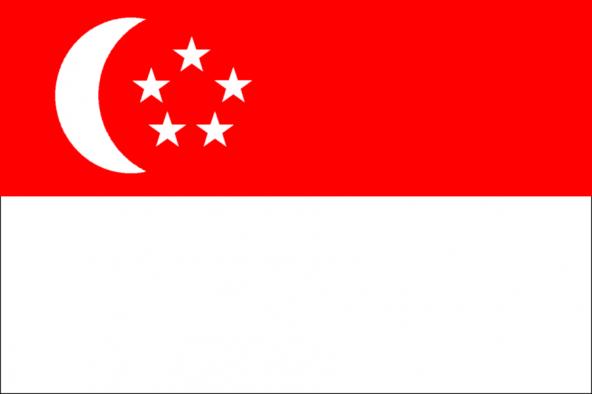
Article(s)
Singapore Executes People Sentenced to Death for Non-violent Crimes and Threatens their Lawyers
By Dinda Royhan, on 19 September 2019
On 13 July 2019, Think Centre reported that 32 executions have occurred in Singapore since it ended its moratorium on the death penalty in 2014. At the same time, lawyers defending capital cases have reported receiving threats from the government. As of the date of writing, Singapore is among 24 world states that have not ratified the ICCPR and its protocols.
2019
Drug Offenses
Legal Representation
Singapore

Article(s)
Drug policy reform, harm reduction movement and the death penalty abolition movement have much in common
By Aurélie Plaçais, on 26 June 2019
As 26 June is “Support. Don’t Punish” Global Day of Action, the World Coalition shares some insight on the 2019 Harm Reduction International Conference which took place in Porto end of April.
2019
Drug Offenses
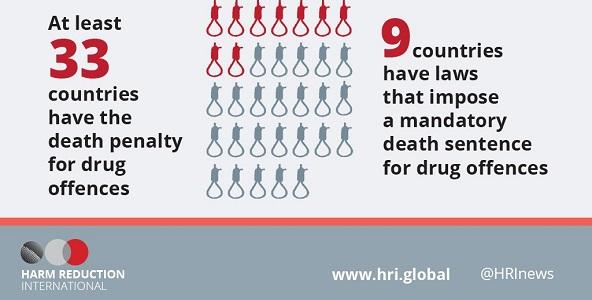
Article(s)
The Death Penalty for Drug Offences, A Global Overview 2017
By Harm Reduction International, on 26 March 2018
This report identifies 33 countries and territories that retain the death penalty for drug offences, including nine in which the sentence is mandatory. Hundreds of people continue to be executed for non-violent drug offences every year by a small minority of States committed to aggressively pursuing extremely harsh penalties for drug crimes, in clear violation of international law.
2018
Drug Offenses

Article(s)
Annual report on the death penalty in Iran 2017
By Iran Human Rights (IHR) - Together Against the Death Penalty (ECPM), on 22 March 2018
The report shows that in 2017 at least 517 people were executed in the Islamic Republic of Iran. This number is comparable with the execution figures in 2016 and confirms the relative reduction in the use of the death penalty compared to the period between 2010 and 2015.
2018
Drug Offenses
Fair Trial
Iran (Islamic Republic of)
Public Opinion
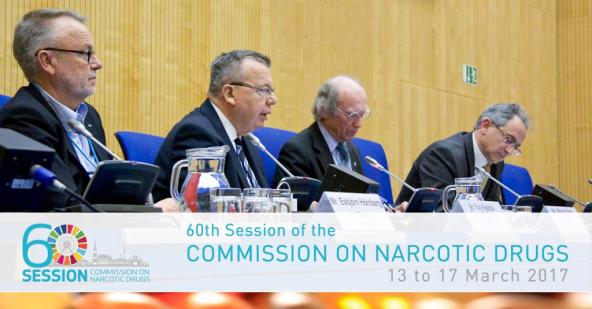
Article(s)
Death penalty and the “war on drugs” discussed during the 60th U.N. Commission on Narcotic Drugs annual meeting.
By Lorène du Crest, on 31 March 2017
In March 2017, the 60th Commission on Narcotic Drugs annual meeting in Vienna took place. During this meeting, governments have been encouraged to “promote proportionate national sentencing policies for drug-related offences”. The death penalty was addressed during several side events.
2017
Drug Offenses
Public Opinion

Article(s)
Philippines: one step forward in the reintroduction of the death penalty
By Lorène du Crest, on 3 March 2017
The Philippines are a step closer to the reintroduction of the death penalty, violating their international obligations.
2017
Drug Offenses
Philippines
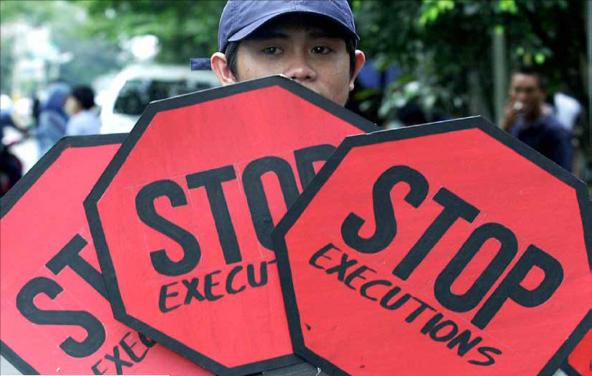
Article(s)
ASEAN countries step back on the path towards abolition
By Tiziana Trotta, on 27 October 2016
Asia has the highest number of retentionist countries in the world. Eight members of the Association of Southeast Asian Nations (ASEAN) retain the death penalty and four of them carried out executions in 2015.
2016
Drug Offenses
Terrorism
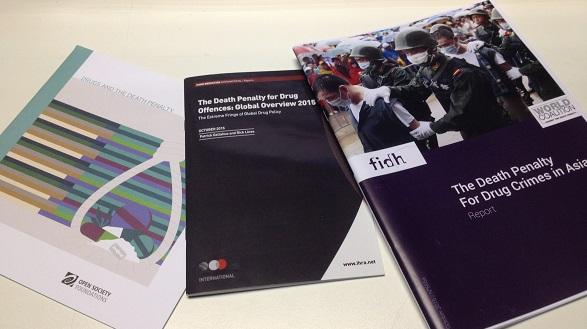
Article(s)
Explaining the Death Penalty for Drug Offences: the Best Reports
By Elisa Bellotti, on 2 November 2015
For October 10, many NGOs have published Reports analyzing, from different perspectives, the issue of the death penalty for drug offences. Read this brief presentation of the reports to facilitate the selection of the research that will best satisfy your thirst for knowledge.
2015
Drug Offenses
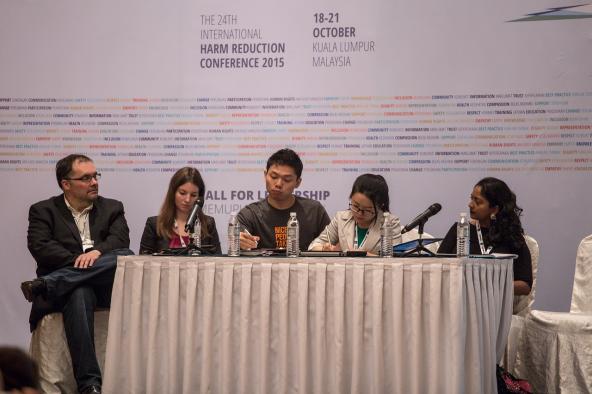
Article(s)
The death penalty for drugs must go, it has no place in a civilised society
By Aurélie Plaçais, on 21 October 2015
Those were the words of Anand Grover, former UN Special Rapporteur on the right to health during the opening ceremony of Harm Reduction International’s 24th conference in Kuala Lumpur, Malaysia.
2015
China
Drug Offenses
India
Indonesia
Malaysia
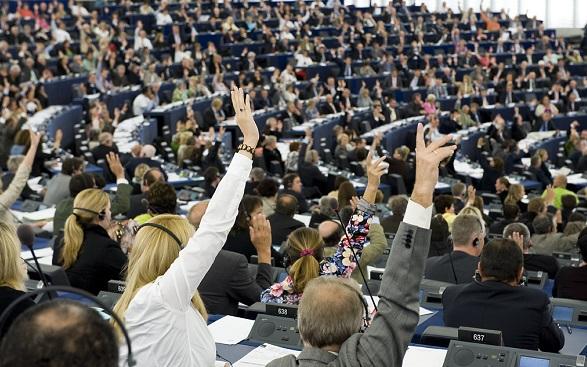
Article(s)
Executions for drug crimes: a violation of international law -international organizations
By Tiziana Trotta, on 15 October 2015
International organizations joined the 13th World Day Against the Death Penalty to stand against this cruel practice. United Nations, the European Union and the Inter-American Commission on Human Rights merged to claim that capital punishment is not the solution to deter drug crimes.
2015
Drug Offenses
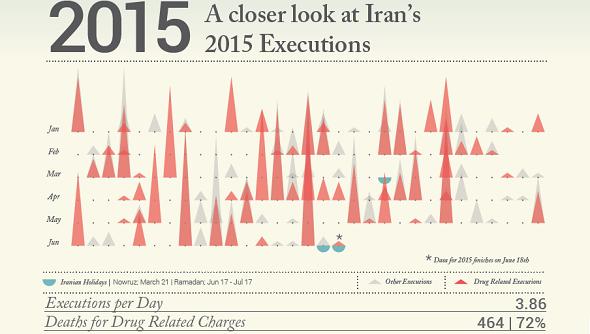
Article(s)
Iran: more than 800 people executed in 2015, 500 for drugs
By Iran Human Rights, on 13 October 2015
Ahead of the 13th World Day Against the Death Penalty, Iran Human Rights is raising awareness about the implementation of the death penalty in Iran for drug-related offenses. Reports from the IHR website indicate that Iranian authorities have carried out more executions in 2015 than any other year in the past 25 years.
2015
Drug Offenses
Iran (Islamic Republic of)

Article(s)
Imposing the death penalty has not reduced drug crimes in Asia -New Report
By FIDH & World Coalition, on 10 October 2015
Death penalty for drug crimes in Asia: an illegal practice reveals report published on World Day by FIDH and the World Coalition
2015
Afghanistan
Bangladesh
China
Democratic People's Republic of Korea
Drug Offenses
India
Indonesia
Iran (Islamic Republic of)
Japan
Lao People's Democratic Republic
Malaysia
Maldives
Myanmar
Pakistan
Republic of Korea
Singapore
Sri Lanka
Taiwan
Thailand
Viet Nam
Article(s)
China reduces the number of crimes punishable by death to 46, but keeps drug trafficking in the list
By Aurélie Plaçais, on 7 October 2015
China removes nine non-violent and rarely used criminal offenses from capital punishment.
2015
China
Drug Offenses
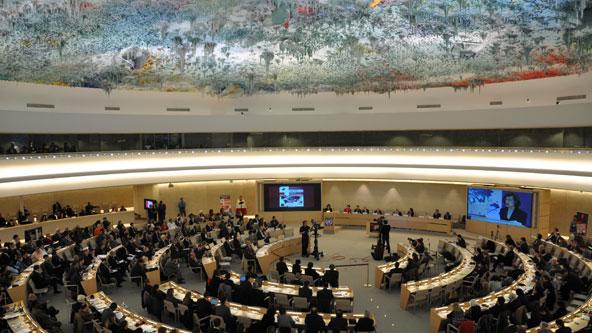
Article(s)
Discussing the Death Penalty for Drug Crimes at the Human Rights Council
By Elisa Bellotti, on 30 September 2015
The Advocates for Human Rights and Together against the Death Penalty (ECPM), in partnership with other members of the World Coalition, organized a Round Table on the issue of the death penalty for drug-related crimes. The event took place during the 30th Session of the UN Human Rights Council, on September 28, 2015.
2015
Drug Offenses
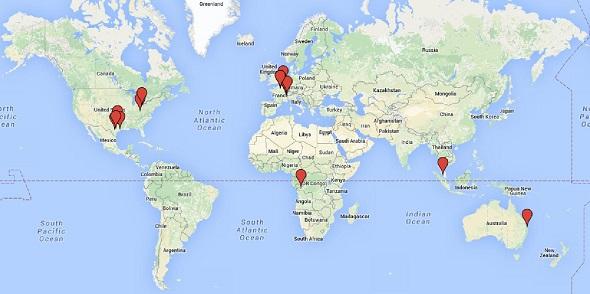
Article(s)
Calendar of events for World Day 2015
By World Coalition Against the Death Penalty, on 15 September 2015
Browse the schedule and the map to prepare and promote the events planned around the world on the big day.
2015
Drug Offenses
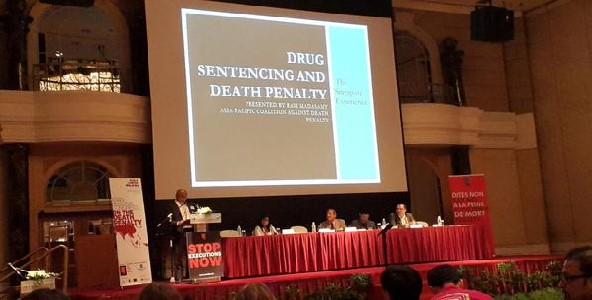
Article(s)
The death penalty for drugs: a central point during the regional congress
By Lauranne Mailhabiau, on 23 June 2015
In Asia, death penalty for drug offences is one of the major issues. During the regional congress, two sessions addressed this issue. It is also the theme of this years’ World Day against the Death Penalty on 10 October 2015.
2015
Drug Offenses
Malaysia
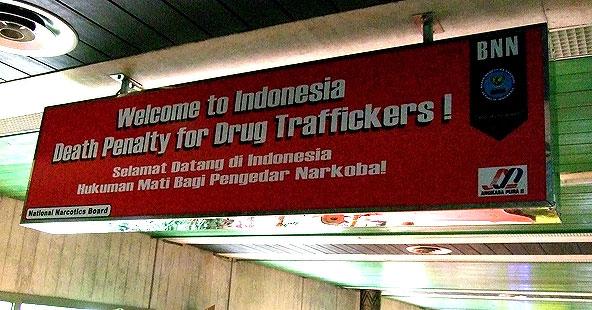
Article(s)
Indonesia: execution for drug crimes is no solution
By World Coalition Against the Death Penalty, on 26 January 2015
In an open letter, the World Coalition and its members, including KONTRAS and Amnesty International, condemn the Indonesian government’s politicizing of the death penalty to show its commitment to eradicating drug-related crimes. Recent resumptions of executions show one thing, they are carried out for political reasons only: in Pakistan to show that it is tough on terrorism, Jordan that it tough on crime and Indonesia that it is tough on drugs. Instead, those states should abolish the death penalty to show their commitment to upholding human rights. The next World Day against the Death Penalty will be dedicated to the issue of capital drug crimes.
2015
Drug Offenses
Indonesia

Article(s)
UN: freeze funding of Iran counter-narcotics efforts
By World Coalition Against the Death Penalty, on 17 December 2014
The World Coalition and its members call on UNODC to stop support to Iran as executions for drug trafficking surge.
2014
Drug Offenses
Iran (Islamic Republic of)

Article(s)
Improved access to unique global death penalty library
By Thomas Hubert, on 10 July 2014
The World Coalition has redesigned its online library to help visitors find the documents they need in its multilingual database of resources and campaigning tools on capital punishment.
2014
Clemency
Cruel, Inhuman and Degrading Treatment and Punishment
Death Row Conditions
Drug Offenses
Fair Trial
Innocence
Intellectual Disability
Juveniles
Legal Representation
Mental Illness
Moratorium
Murder Victims' Families
Public Opinion
Terrorism
Women
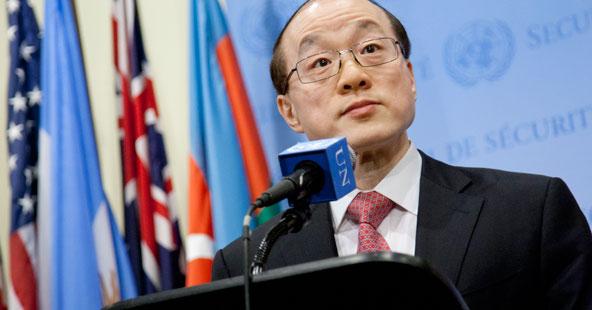
Article(s)
How far is China ready to reduce its use of the death penalty?
By Aurélie Plaçais, on 25 November 2013
The number one executioner in the world recently made national and international commitments to continuing to reform its death penalty, but how far is China really ready to go?
2013
China
Clemency
Drug Offenses
Terrorism
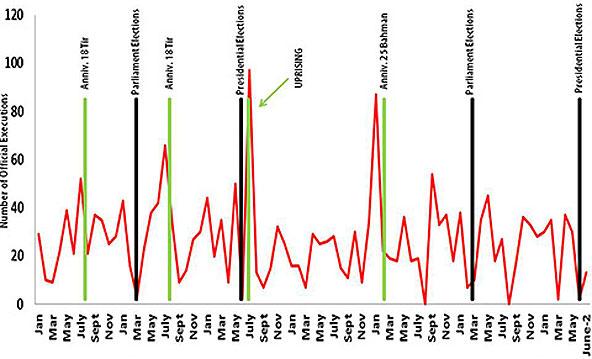
Article(s)
Stats show Iran executions are linked to political events
on 17 July 2013
Figures examined by World Coalition member organisation Iran Human rights show peaks in the use of the death penalty before and after each election.
2013
Drug Offenses
Iran (Islamic Republic of)
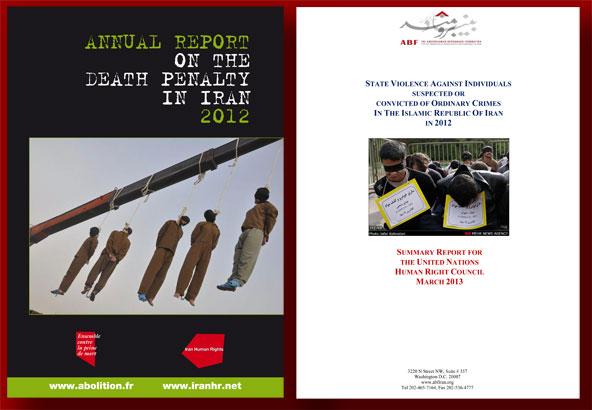
Article(s)
“Iran kills for possession of less than 50g of drugs”
By Thomas Hubert, on 9 April 2013
Annual reports published by two World Coalition member organizations of Iranian exiles expose the disproportionate use of the death penalty in Iran, mostly against drug users and traffickers.
2013
Drug Offenses
Iran (Islamic Republic of)
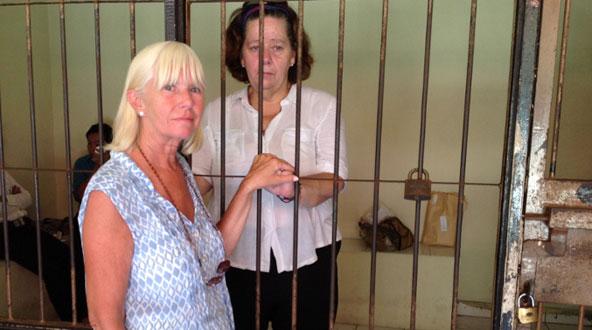
Article(s)
Briton’s death sentence puts Indonesians at risk
By KontraS, on 31 January 2013
The World Coalition’s Indonesian member organization KontraS has raised the international consequences of Lindsay Sandiford’s high-profile capital case in an opinion article published by the Jakarta Globe newspaper, calling on the country to abolish the death penalty.
2013
Drug Offenses
Indonesia
Moratorium

Article(s)
Drug-busting aid to Iran must be frozen
By Thomas Hubert, on 27 November 2012
The World Coalition is calling on international donors to stop helping Iran enforce abusive capital drug laws.
2012
Cruel, Inhuman and Degrading Treatment and Punishment
Drug Offenses
Iran (Islamic Republic of)
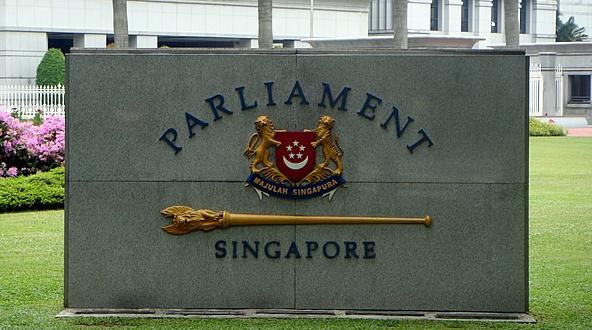
Article(s)
Singaporean and Malaysian activists welcome changes in their country
By World Coalition Against the Death Penalty, on 16 July 2012
In Singapore and Malaysia, governments are considering removing mandatory death penalty in some drug and murder cases. A move welcomed by activists on the ground, though they consider it “only a small step in the right direction”.
2012
Drug Offenses
Malaysia
Singapore
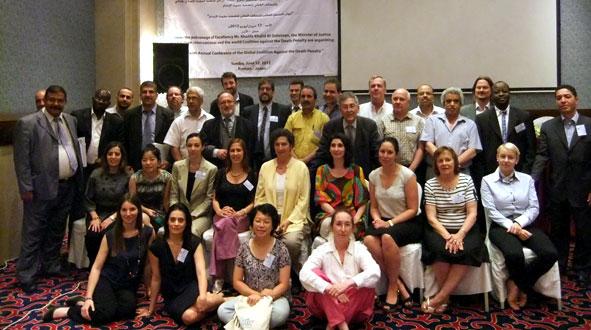
Article(s)
10 years, 132 members, 45 countries
By Florence Bellivier, on 30 June 2012
Penal Reform International welcomed the World Coalition Against the Death Penalty to celebrate its tenth anniversary in Jordan with support from Justice Minister Khalifa Al Sulaiman.
2012
Drug Offenses
Iran (Islamic Republic of)
Iraq
Jordan
Moratorium
Singapore
Taiwan

Article(s)
Highest execution numbers in Iran in 10 years
By Mahmood Amiry-Moghaddam, on 13 March 2012
Iran Human Rights has published its annual report on the death penalty in Iran in 2011. IHR’s international spokesperson Mahmood Amiry-Moghaddam says the Iranian authorities are keeping the number of executions high because they use the death penalty as a political tool.
2012
Drug Offenses
Iran (Islamic Republic of)
Juveniles
Women
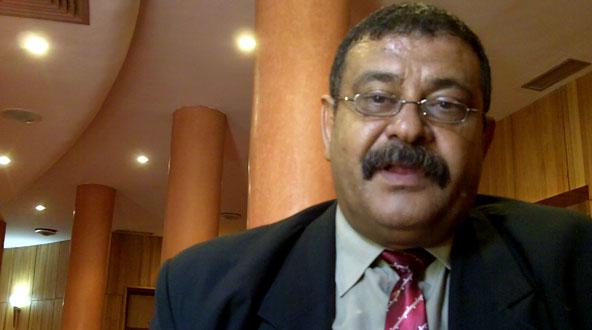
Article(s)
More than 1,000 sentenced to death in Iraq in 8 years
By Dr Nasr Abbood, on 1 March 2012
The Iraqi institutions established after the US-led invasion and the fall of Saddam Hussein have reinstated the death penalty and extended its scope since 2004. In this op-ed article, Iraqi Coalition Against the Death Penalty president Nassr Abood calls for alternative sentences and for a strong stance from the international community.
2012
Drug Offenses
Iraq
Iraq
Terrorism
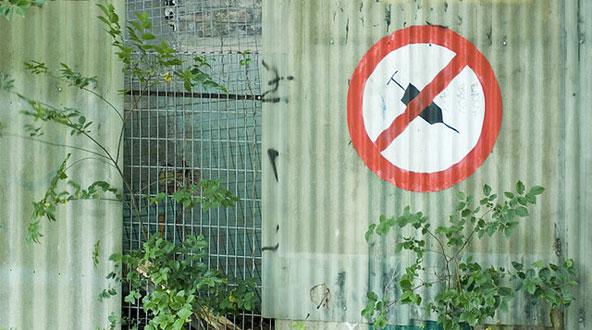
Article(s)
The shared responsibility of capital punishment
on 27 September 2011
Everyone agrees that the highest international standards should apply in the fight against drug. But what about the standards used in punishing traffickers- and the inappropriate use of the death penalty against such criminals?
2011
Australia
Bhutan
Colombia
Drug Offenses
Indonesia
Italy
Mozambique
Nepal
Niue
Pakistan
Philippines
South Africa
State of Palestine
Sweden
Taiwan
Terrorism
Thailand
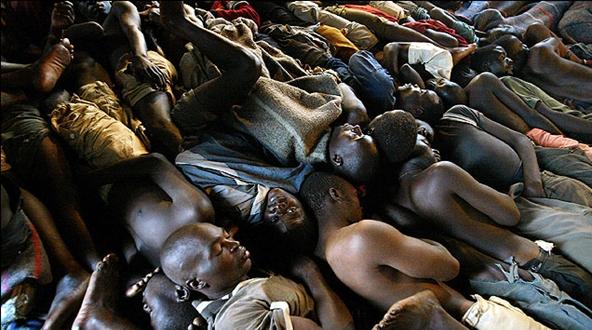
Article(s)
Asia still top executioner but more divided than ever: Hands Off Cain Report
By Aurélie Plaçais, on 11 August 2011
Hands Off Cain’s 2011 Report contains the most important facts regarding the practice of the death penalty in 2010 and the first six months of 2011.
2011
China
Democratic People's Republic of Korea
Drug Offenses
India
Iran (Islamic Republic of)
Mongolia
Moratorium
Myanmar
Viet Nam

Article(s)
India asked to maintain the moratorium on executions
By Emile Carreau, on 28 July 2011
After a six year moratorium on executions, India’s President Patil has rejected the mercy petition of two Indian nationals despite international outcry to maintain the moratorium.
2011
Cruel, Inhuman and Degrading Treatment and Punishment
Drug Offenses
India
Moratorium

Article(s)
Amnesty 2010 stats: retentionist countries increasingly isolated
on 28 March 2011
Countries which continue to use the death penalty are being left increasingly isolated following a decade of progress towards abolition, Amnesty International has said in its new report Death Sentences and Executions in 2010.
2011
China
Drug Offenses
Egypt
Fair Trial
Indonesia
Iran (Islamic Republic of)
Juveniles
Lao People's Democratic Republic
Libya
Malaysia
Moratorium
Pakistan
Sudan
Thailand
United Arab Emirates
United States
Yemen

Article(s)
Outrage as Iran’s execution figures explode
on 12 February 2011
Iran hanged 121 people in six weeks between 20 December 2010 and 31 January 2011, many of them after unfair trails and for crimes that did not result in a person’s death.
2011
Drug Offenses
Fair Trial
Iran (Islamic Republic of)
Juveniles
Moratorium
Article(s)
NGOs seek abolition before African human rights body, The Gambia bucks the trend
on 26 November 2010
The African Commission on Human and Peoples’ Rights met in Banjul between November 10-24. A group of abolitionist organisations took part in the conference.
2010
Drug Offenses
Gambia
Moratorium
Article(s)
FIDH report on Vietnam: an update on death penalty statistics
on 19 September 2010
The FIDH and the Vietnam Committee on Human Rights released a new report, From Visions to Facts: Human Rights in Vietnam under its Chairmanship of ASEAN, on 16 August 2010.
2010
Drug Offenses
Moratorium
Viet Nam
Viet Nam

Article(s)
Singapore arrests writer over death penalty book
on 20 July 2010
The British author of a book on Singapore’s death penalty is facing prosecution for criticizing the massive use of capital punishment in the Asian city-state.
2010
Drug Offenses
Singapore
Article(s)
Four Japanese executed in China
on 9 April 2010
A Japanese abolitionist organisation has criticised both the Chinese and the Japanese authorities after the series of executions.
2010
China
Drug Offenses
Article(s)
Crime and populism prevent abolition in the Caribbean
on 28 February 2010
The region has the highest crime rate in the world. Whether it is gratuitous violence, domestic violence, ethnic tensions or drug-related violence, people want solutions faced to the accumulation of crime.
2010
Colombia
Drug Offenses
Jamaica
South Africa
Article(s)
Clever use of online tools could boost activism
on 28 February 2010
Kathy Brown, an English IT specialist, is not the typical anti-death penalty campaigner. She is not an NGO-registered lawyer nor a political science student. But through the internet, she has become active in the global abolitionist community.
China
Drug Offenses
Mental Illness
Article(s)
Protecting vulnerable groups from the death penalty
on 24 February 2010
Juveniles and the mentally ill face a higher risk of falling victims to the death penalty. Abolitionists and activists defending their rights have teamed up to highlight this situation.
2010
Drug Offenses
Iran (Islamic Republic of)
Juveniles
Mental Illness
Switzerland
Women
Article(s)
Resumption of executions in Thailand criticised
on 3 September 2009
The Thai government has attracted widespread condemnation from the global abolitionist movement after it had two drug traffickers executed.
2009
Drug Offenses
Thailand
Article(s)
End the death penalty for drug-related offences
on 26 June 2009
June 26 is a world day of action against drugs. Several international NGOs have joined their voices to condemn the use of capital punishment against drug users and traffickers.
2009
China
Drug Offenses
Indonesia
Viet Nam
Article(s)
Indonesian activists face upward death penalty trend
on 10 February 2009
Indonesia-based researcher Dave McRae finds that a core group of abolitionists are battling a rise in the number of executions, death sentences and death row inmates in the country.
2009
Cruel, Inhuman and Degrading Treatment and Punishment
Drug Offenses
Indonesia
Public Opinion
Article(s)
Vietnam considers reduction in scope of death penalty
on 9 February 2009
Vietnamese Justice Minister Ha Hung Cuong has proposed a reduction in the number of capital offences – a demand put forward by the World Coalition’s demands on World Day Against the Death Penalty.
2009
Drug Offenses
Viet Nam
Viet Nam
Article(s)
1,700-mile “Walk4Life” across the US
on 13 March 2008
American hip-hop artist Andre Latallade, also known as Capital-“X”, will walk 1,700 miles from New Jersey to Texas from March 31 to campaign against the death penalty.
2008
Drug Offenses
United States
Article(s)
ADPAN: tearing down Asia’s death penalty veil of secrecy in 2008
on 3 February 2008
The majority of executions take place in Asia. But this is also the continent where campaigners have developed a fantastic regional abolitionist network, one that reaches across borders, languages and religions.
2008
China
Drug Offenses
Fair Trial
Japan
Mental Illness
Mongolia
Murder Victims' Families
Public Opinion
Republic of Korea

